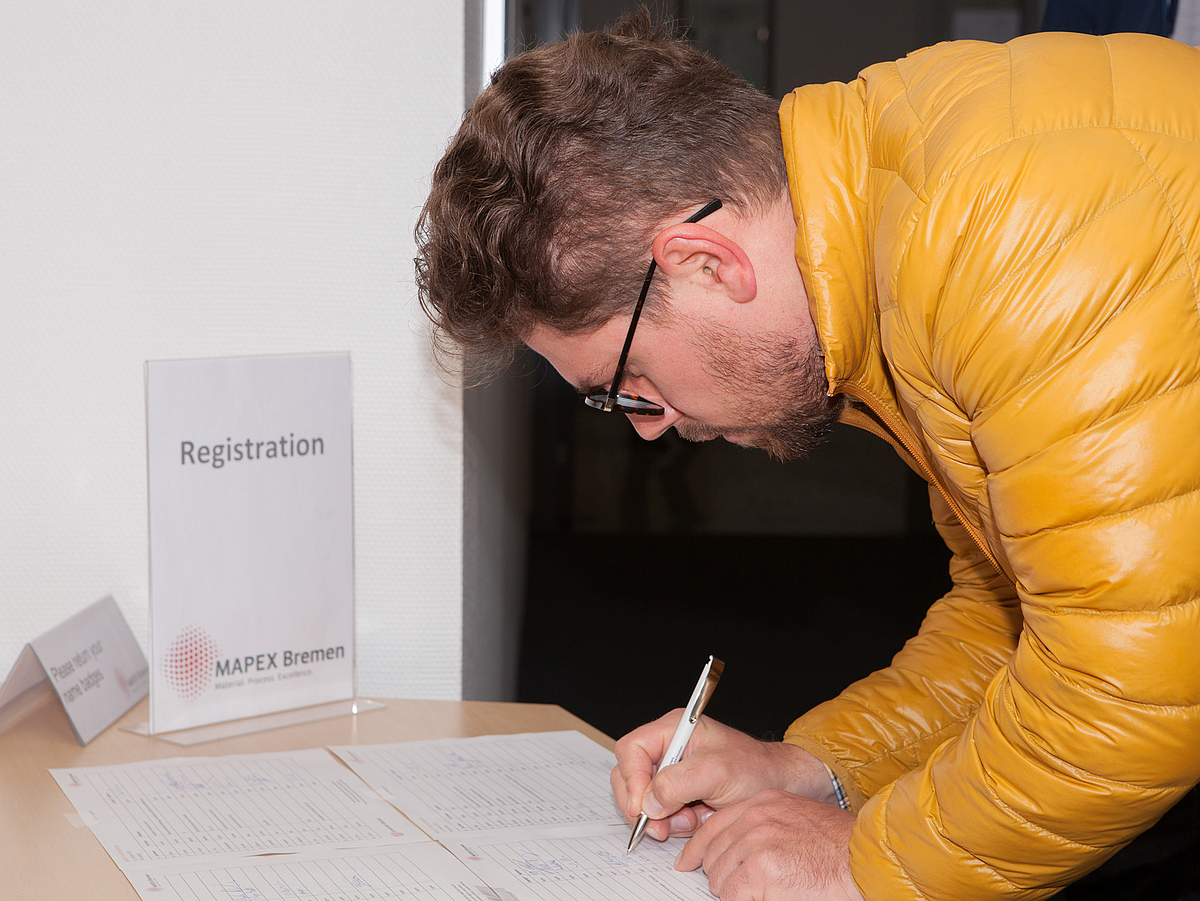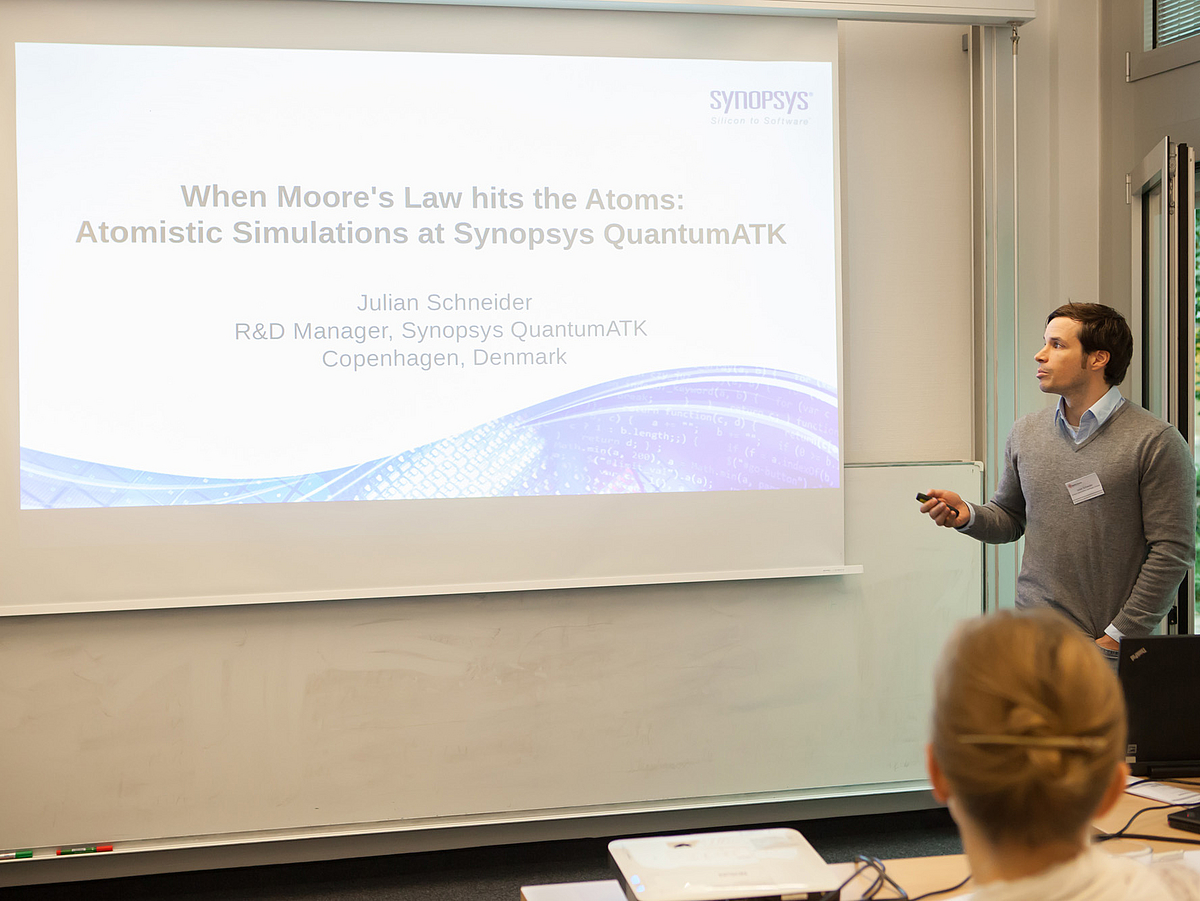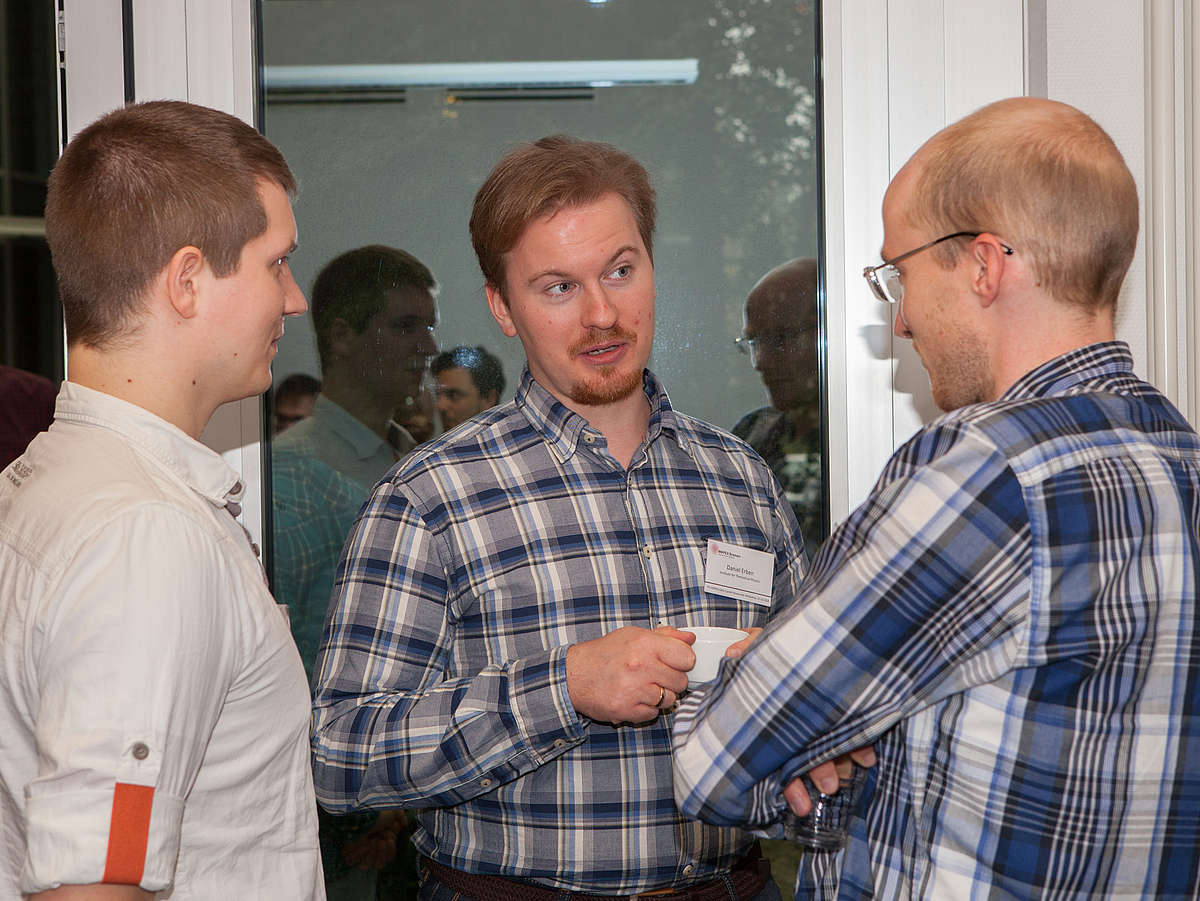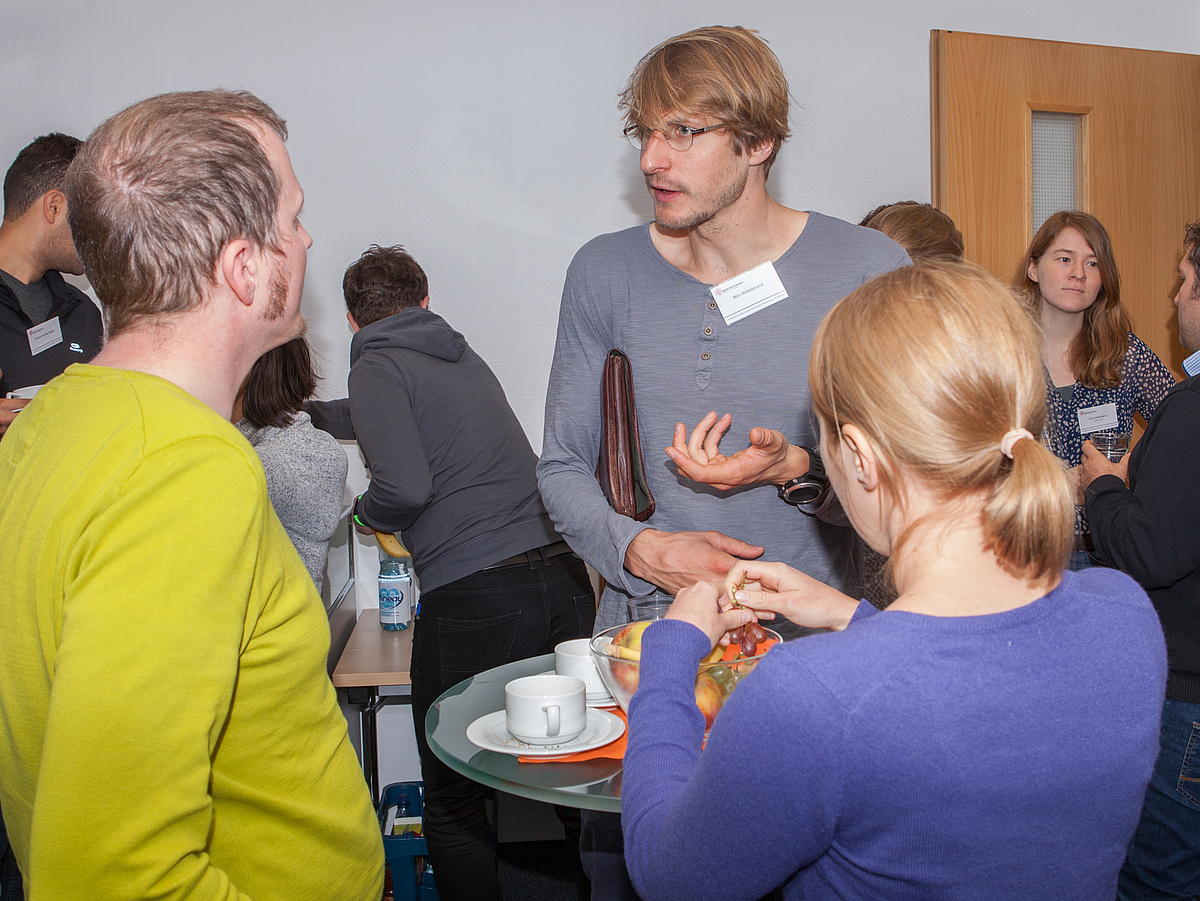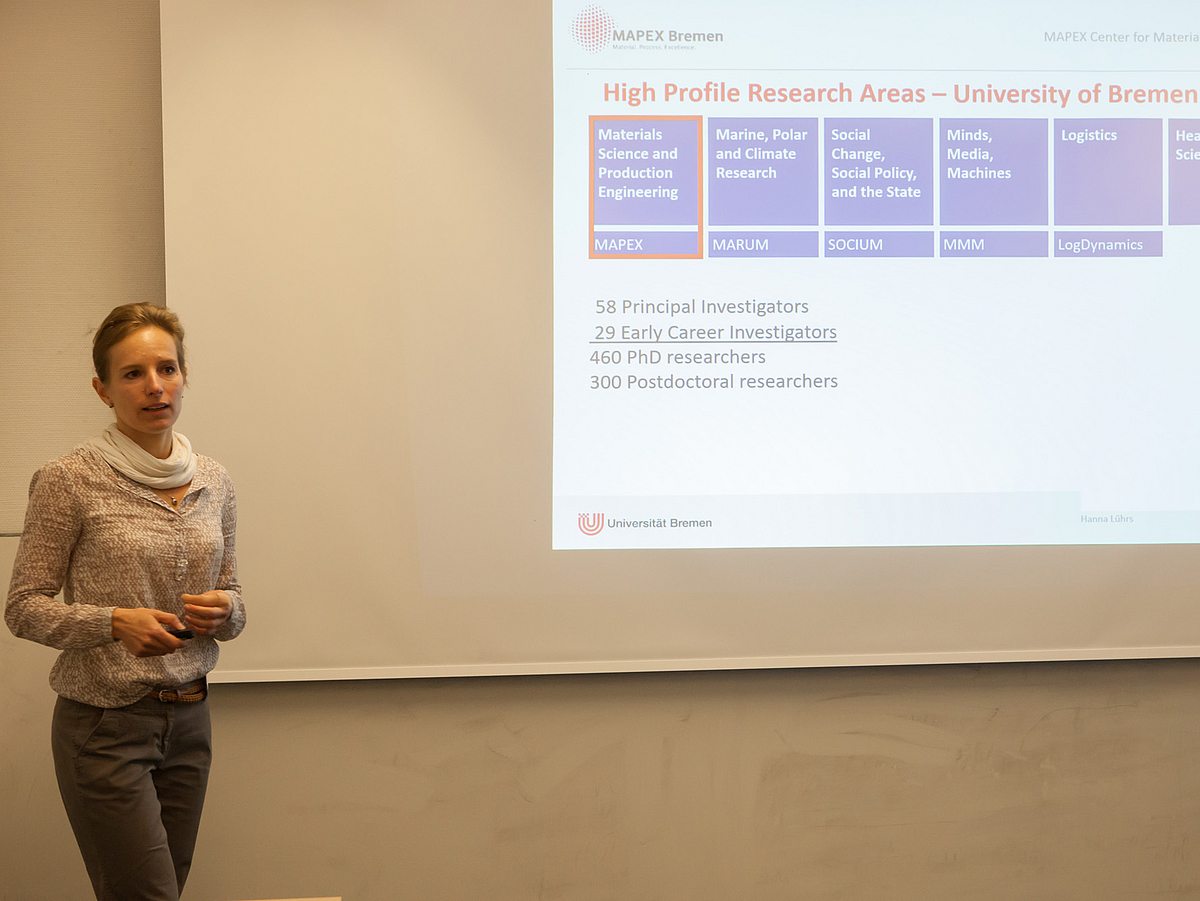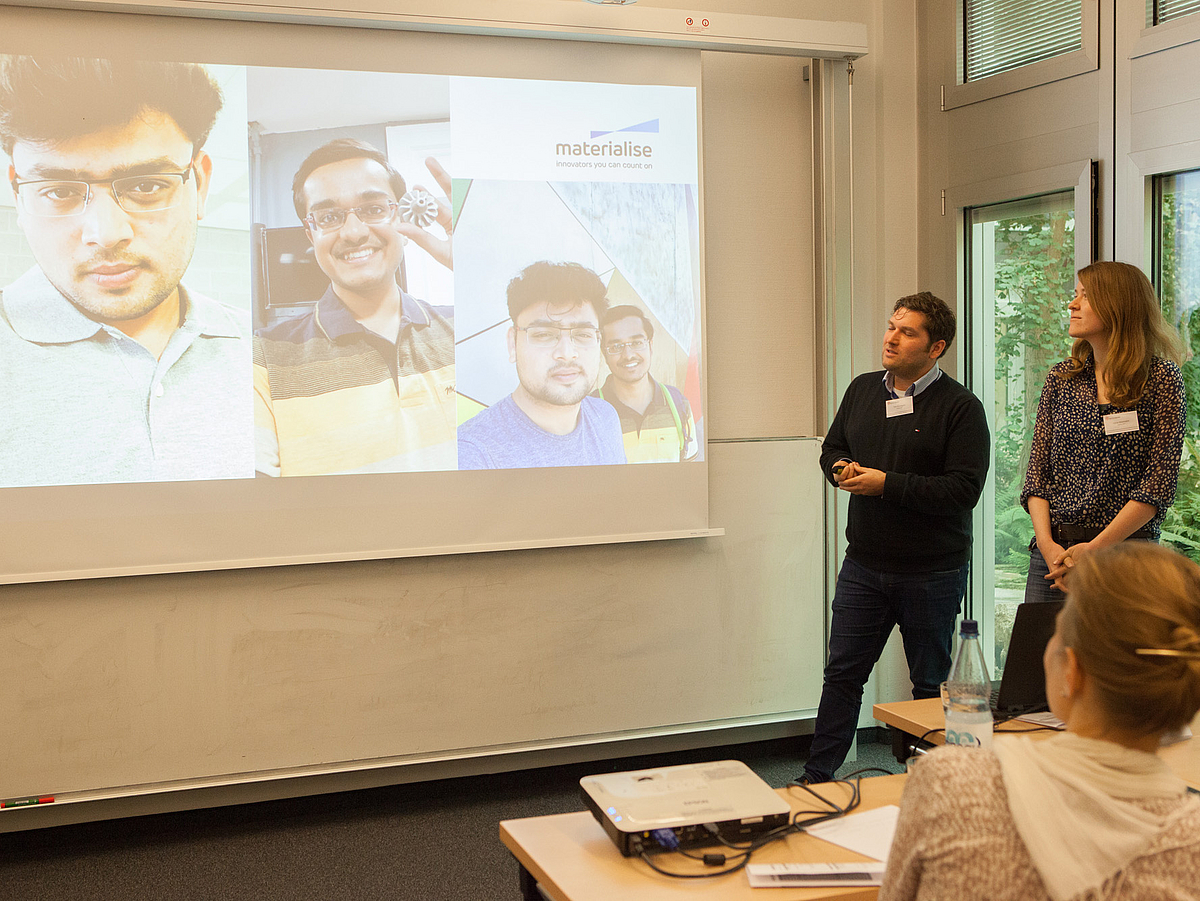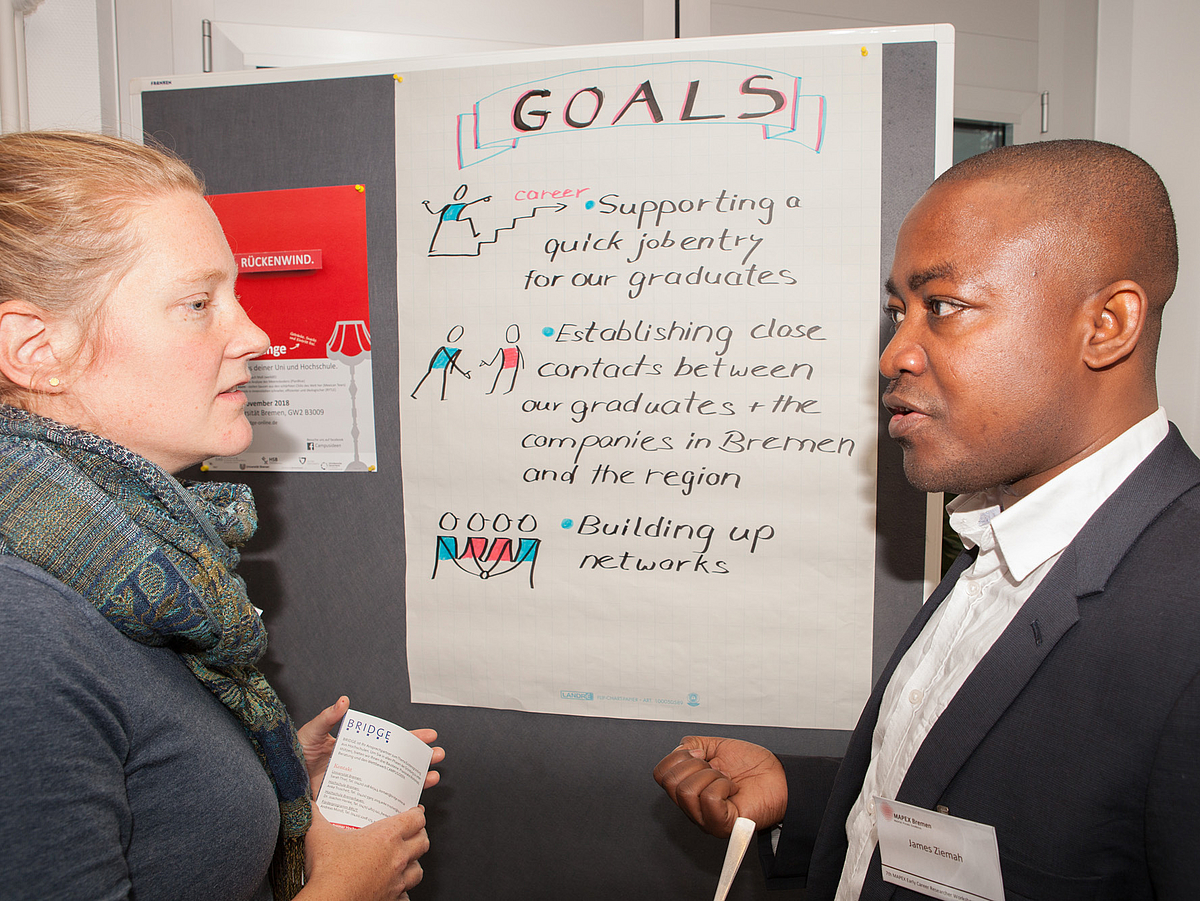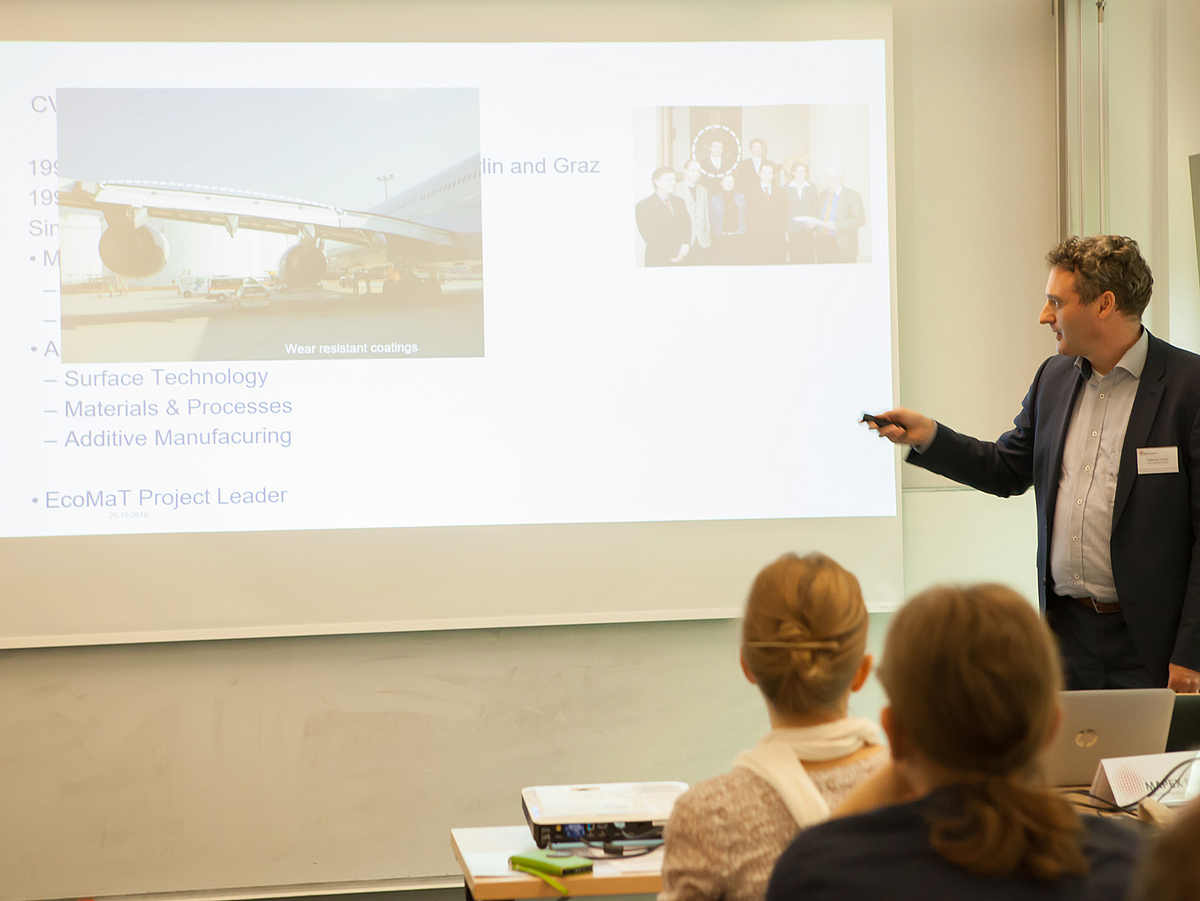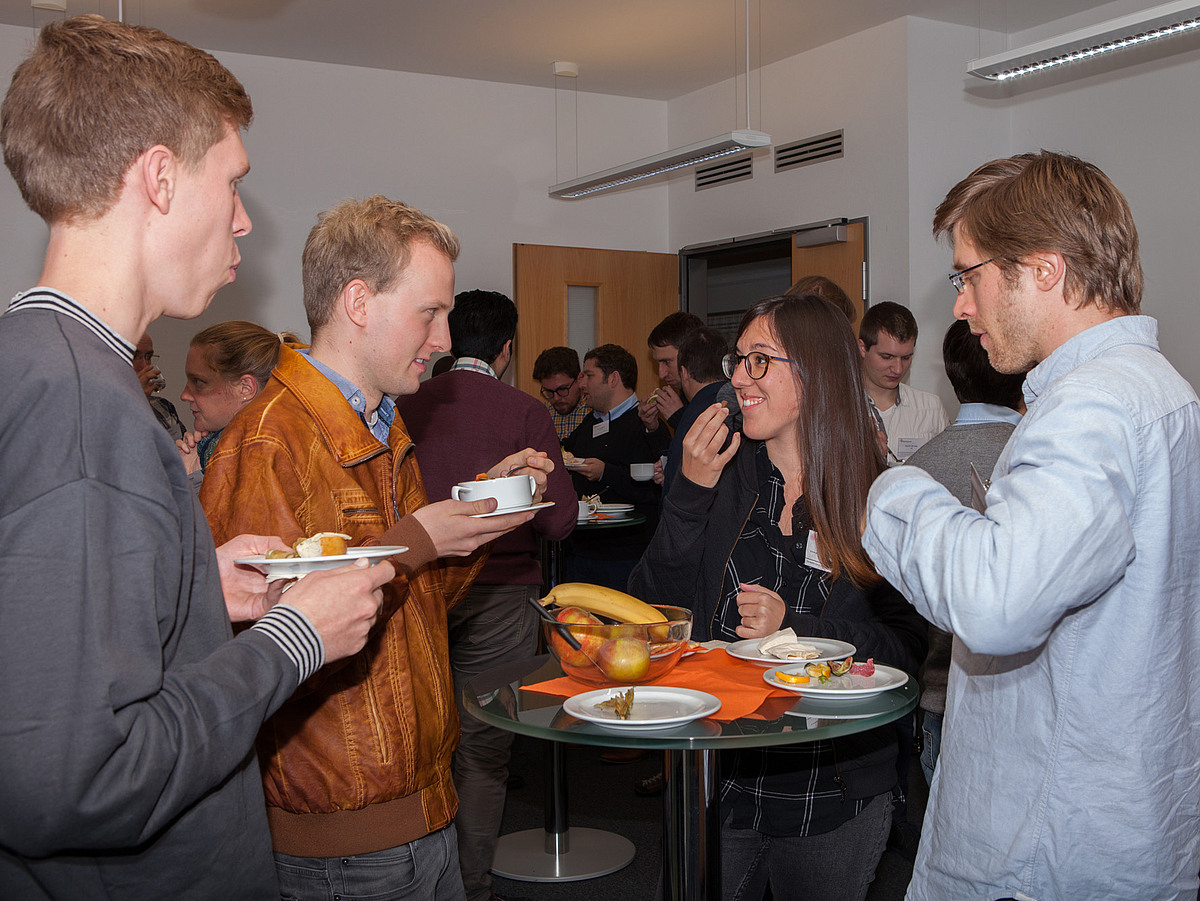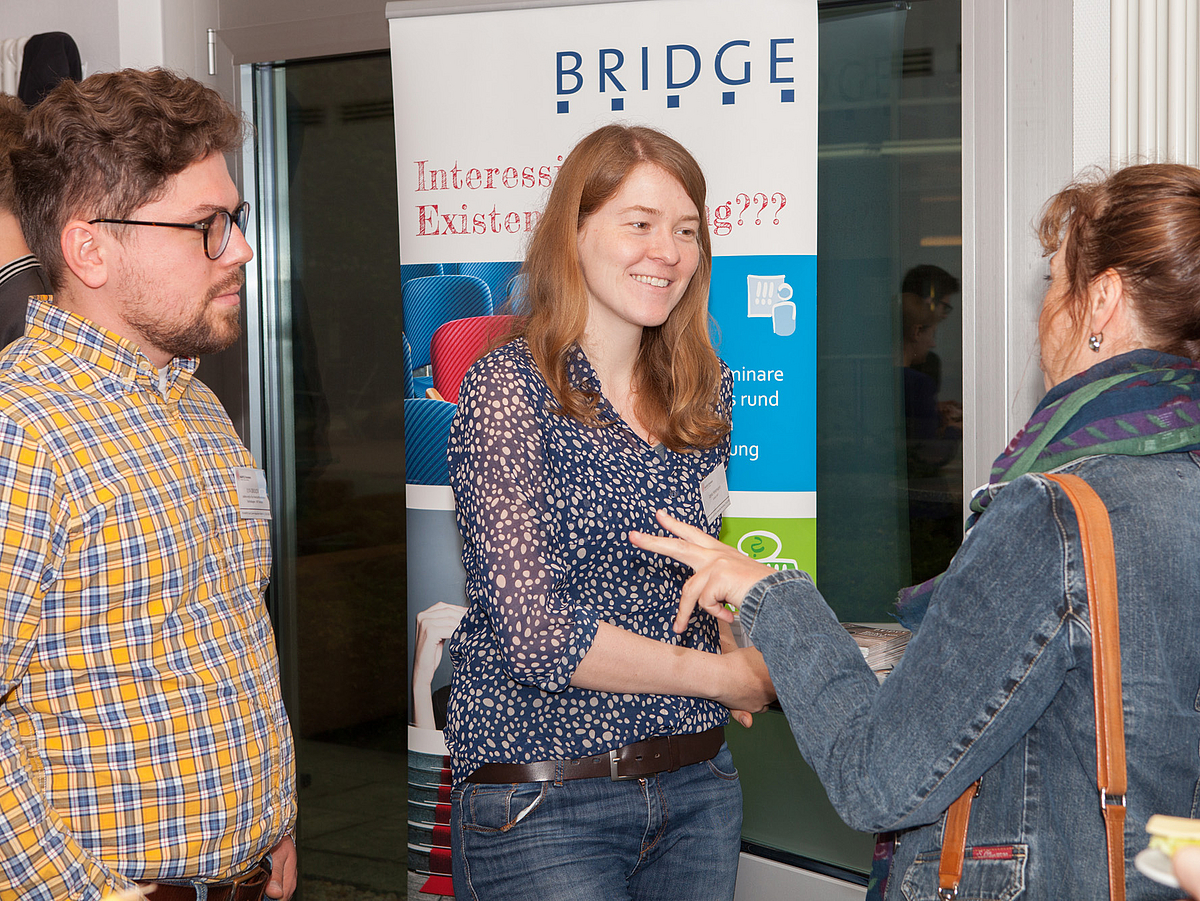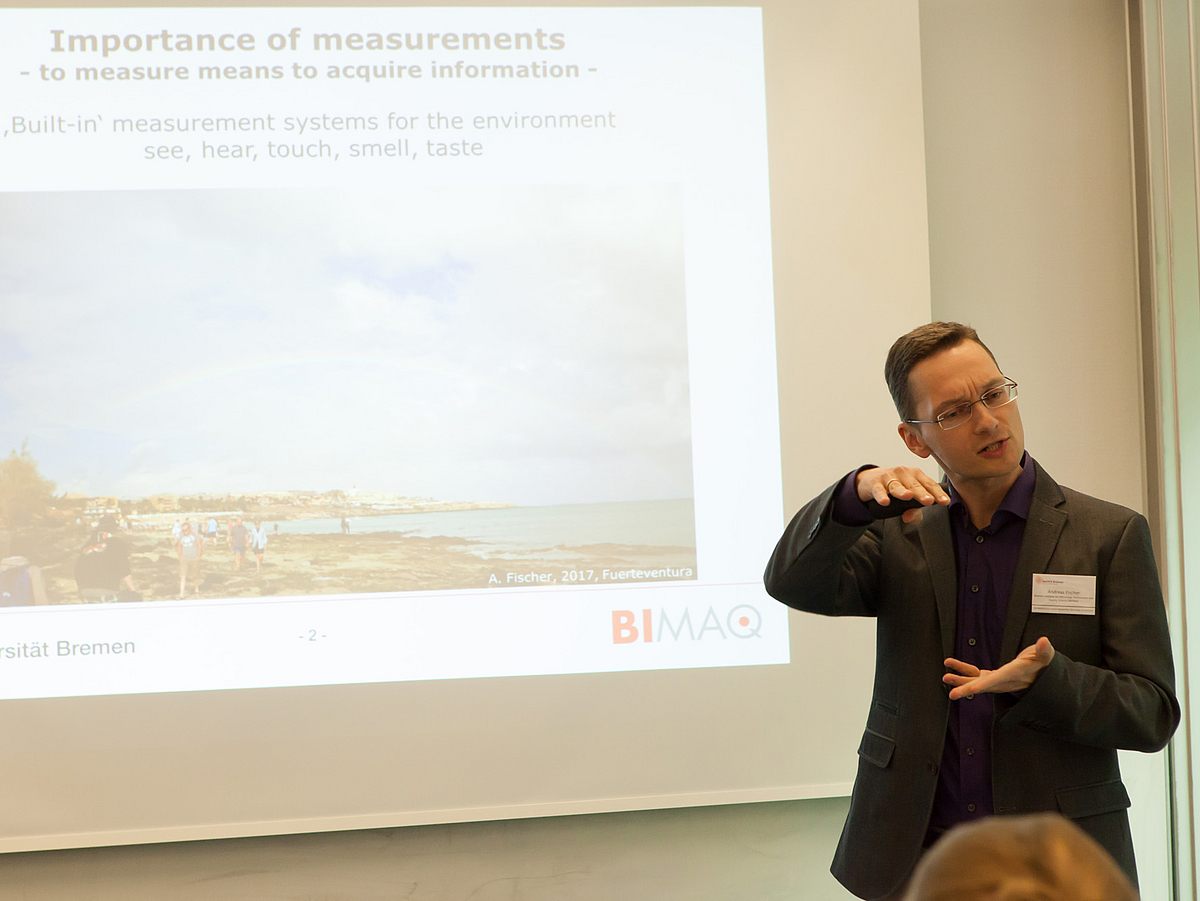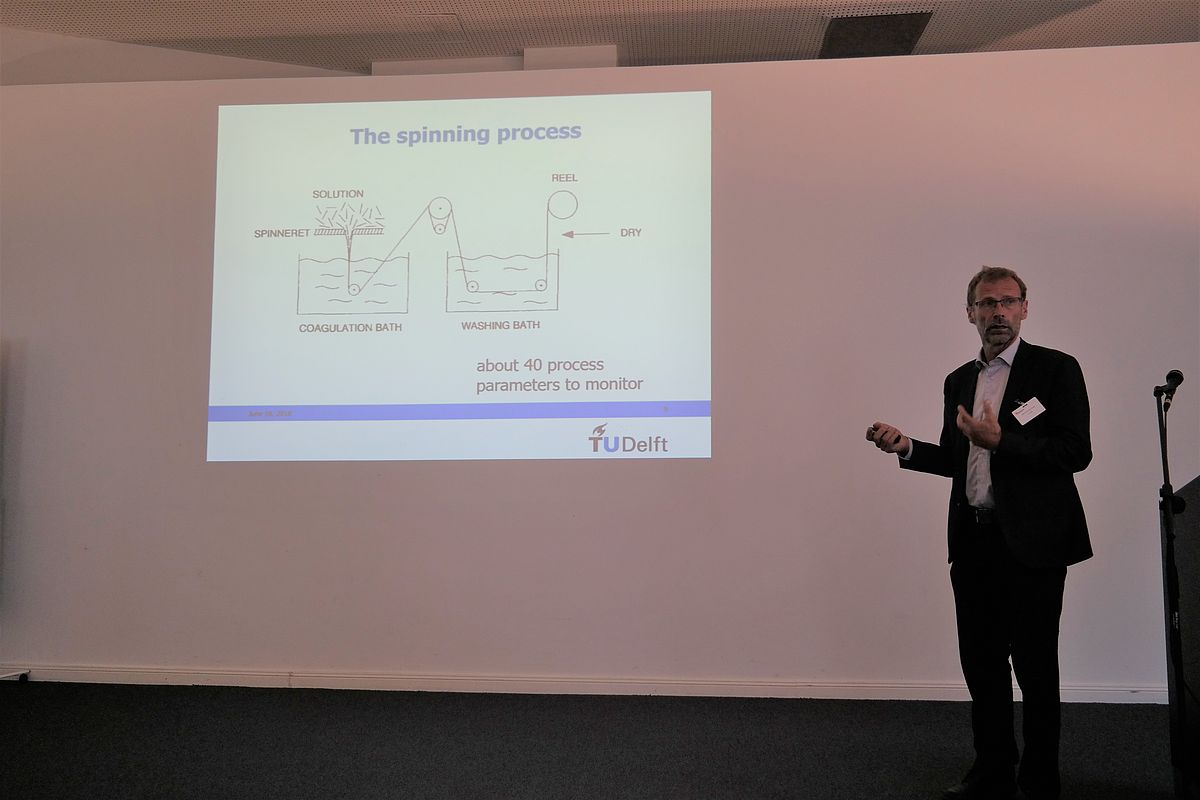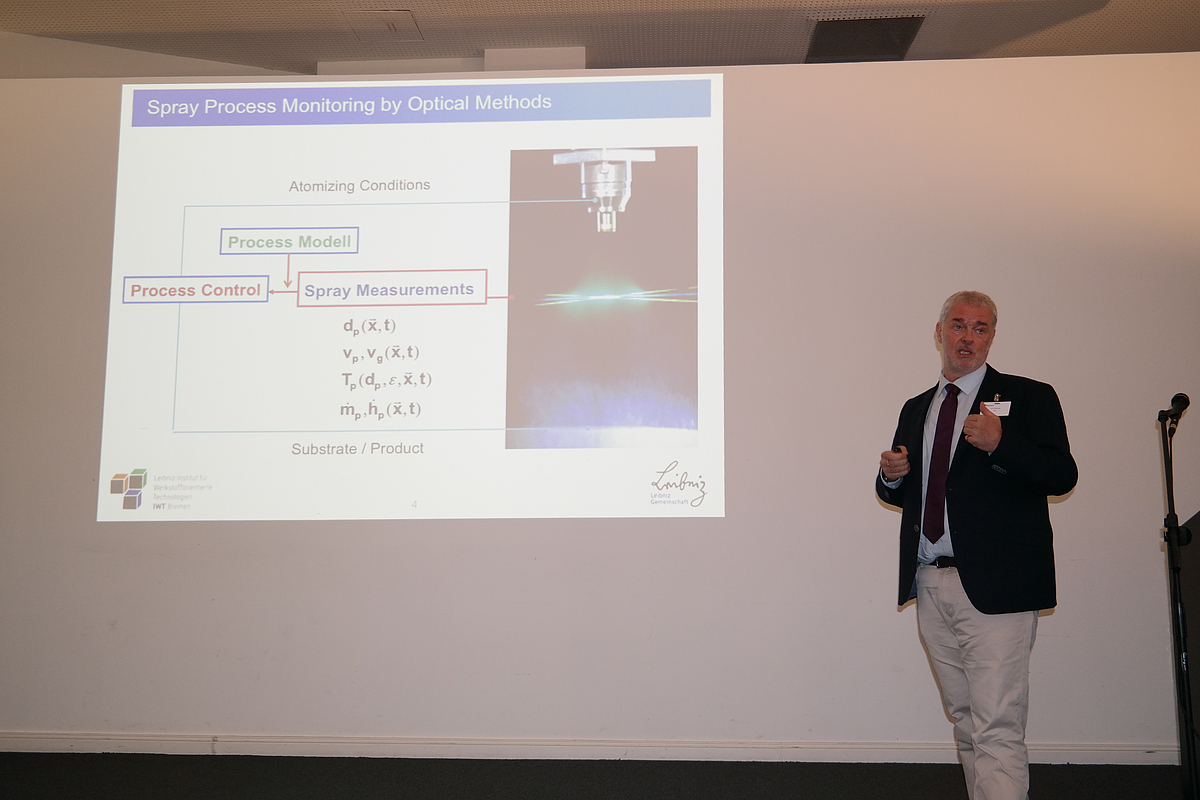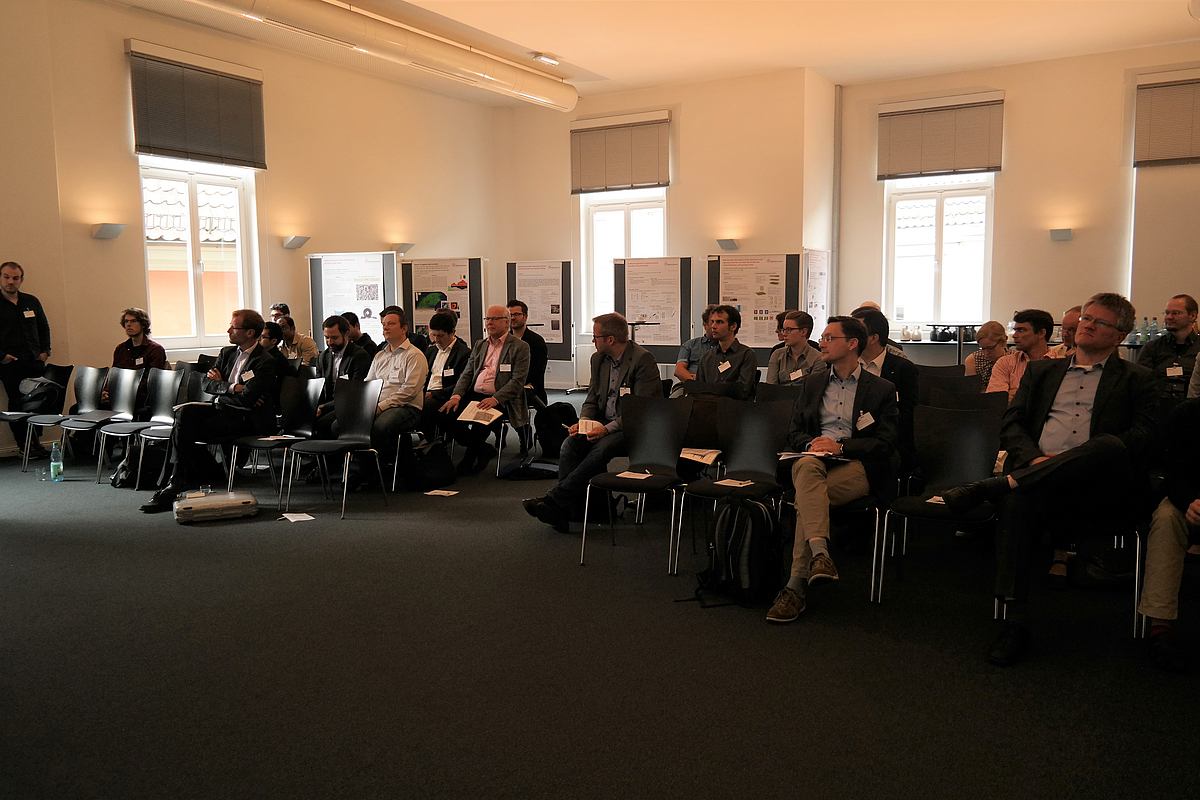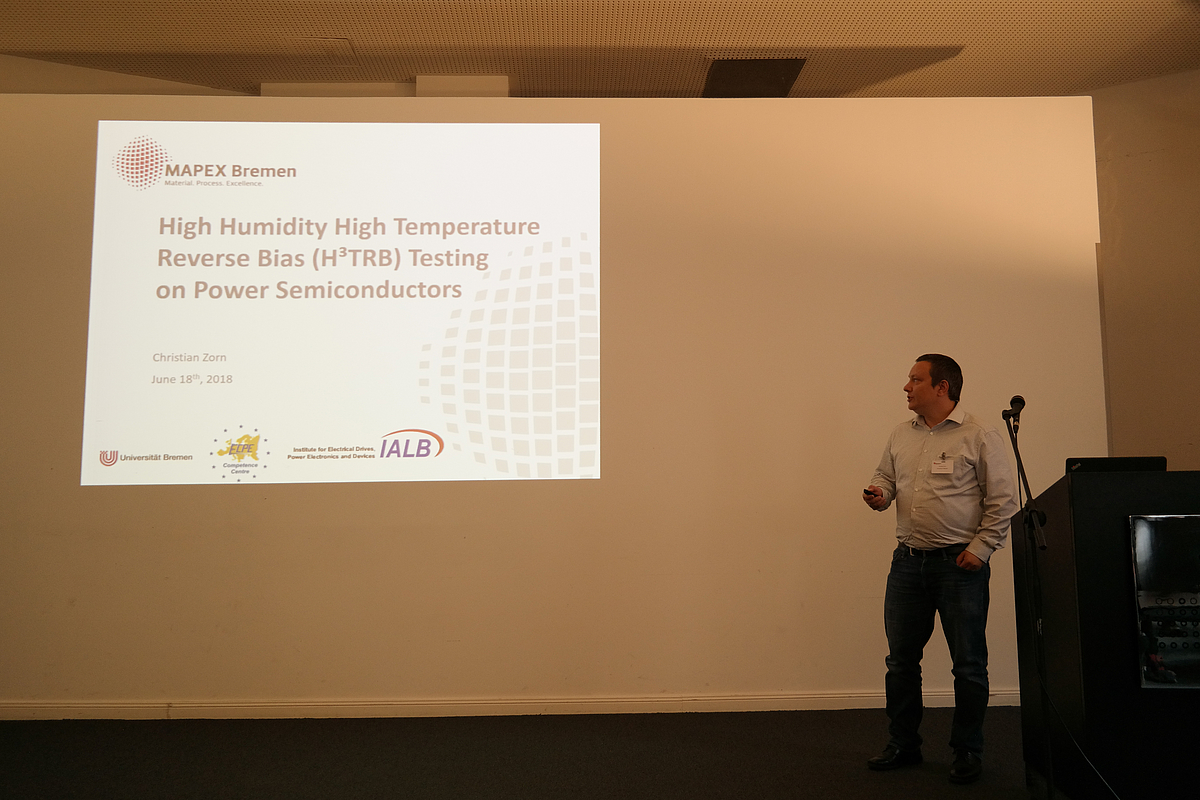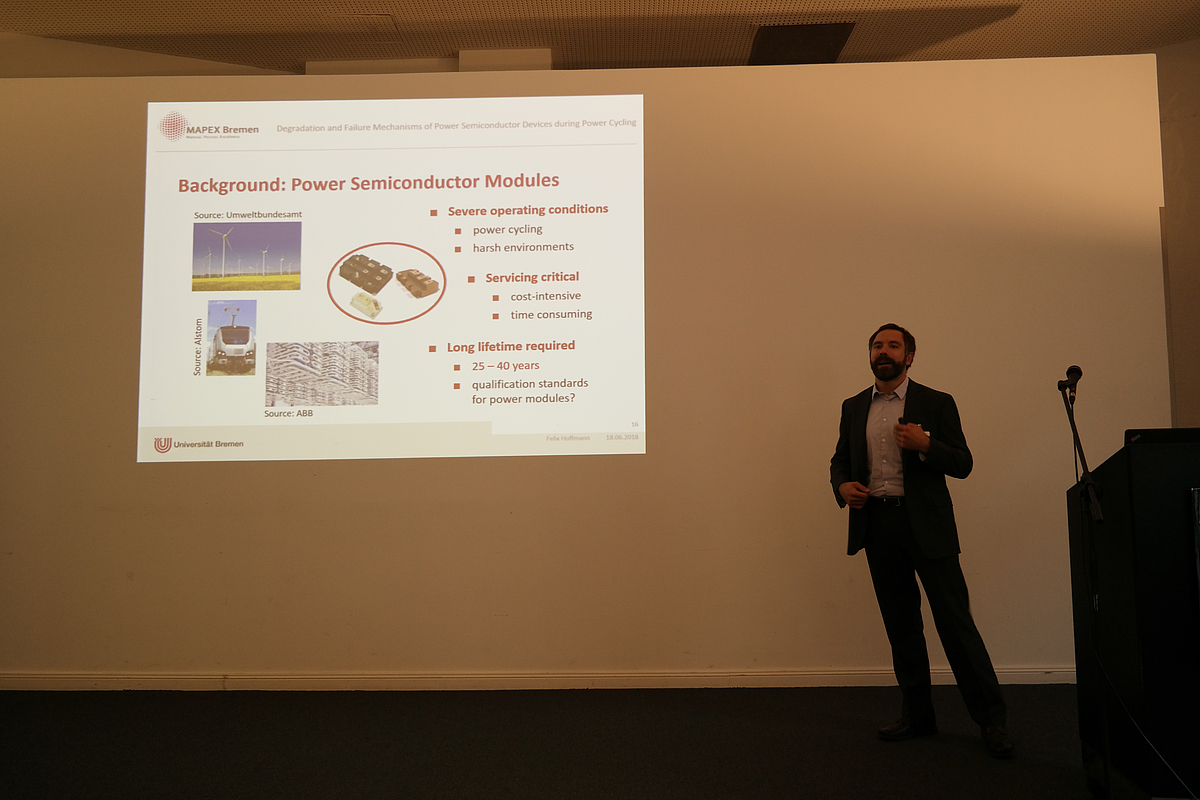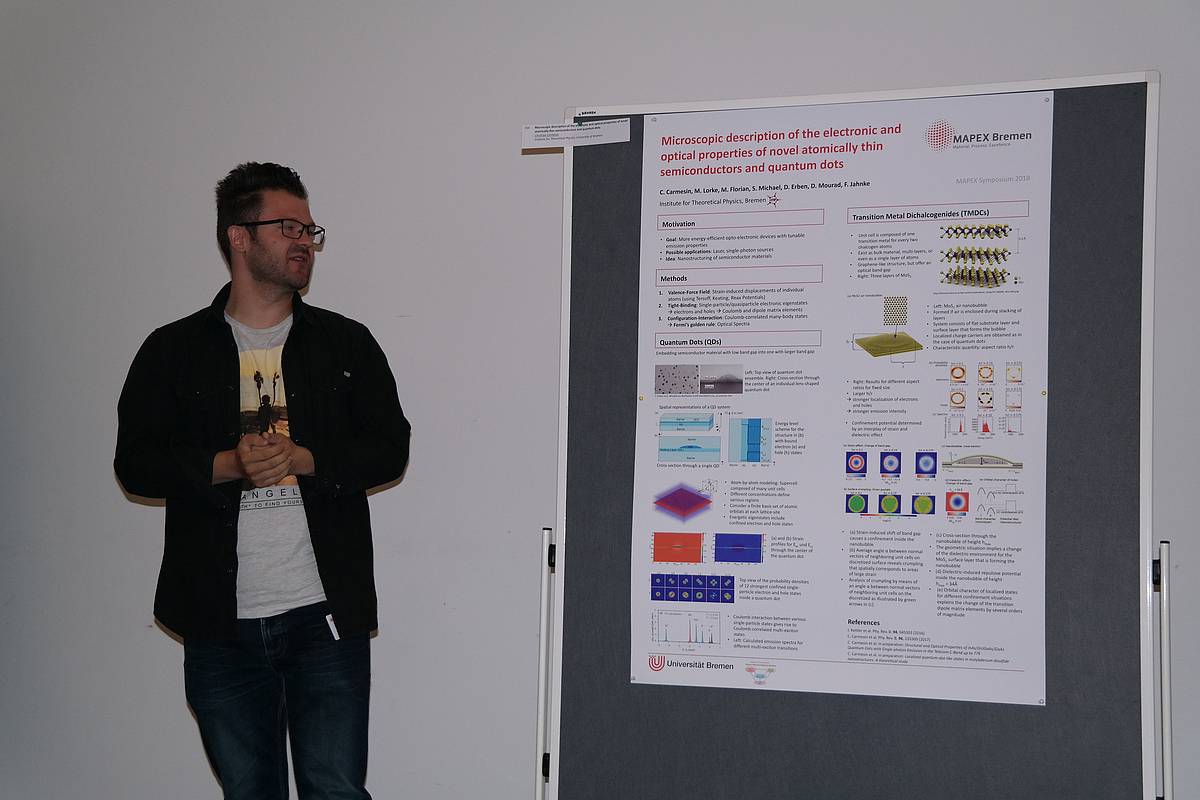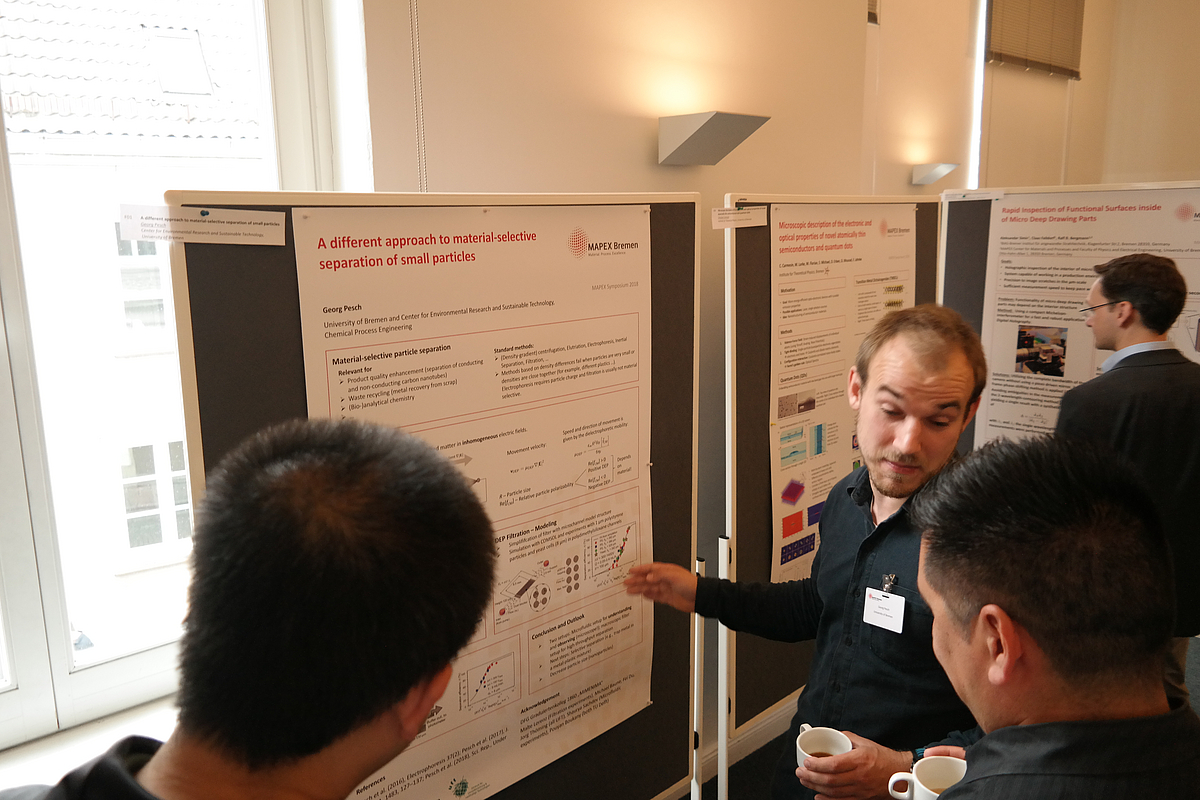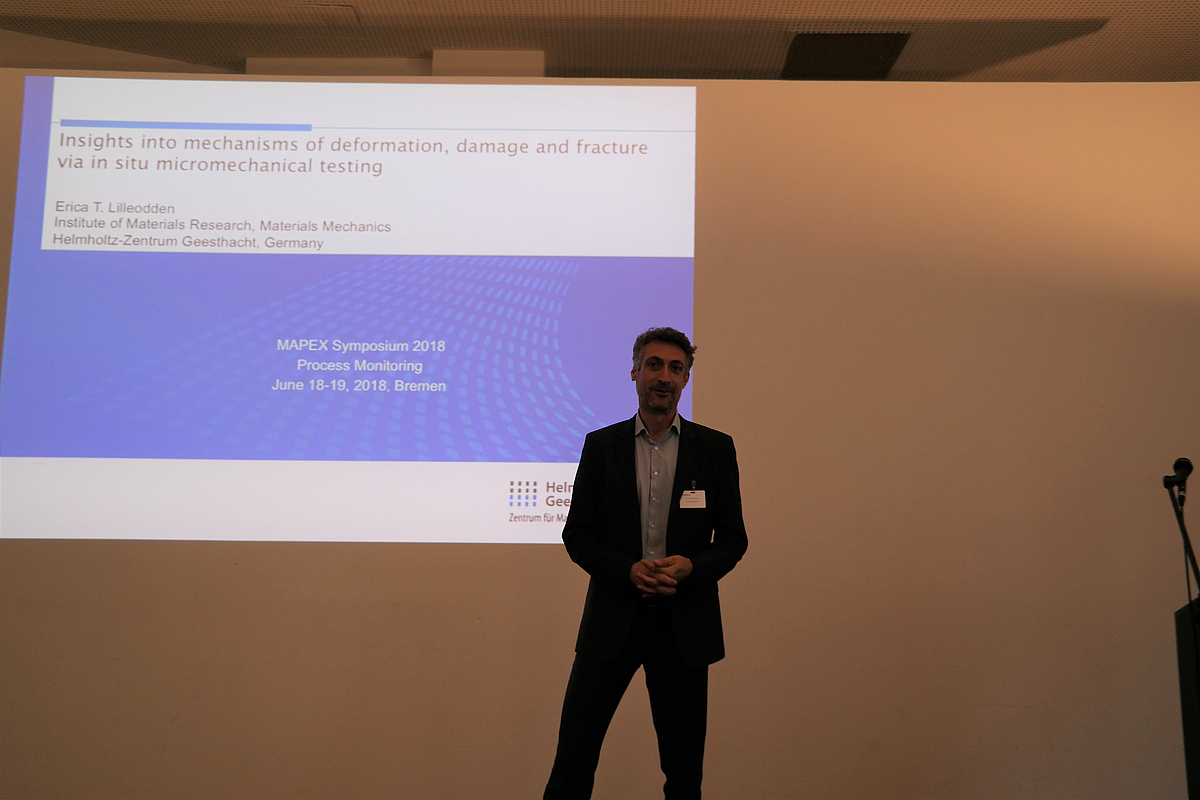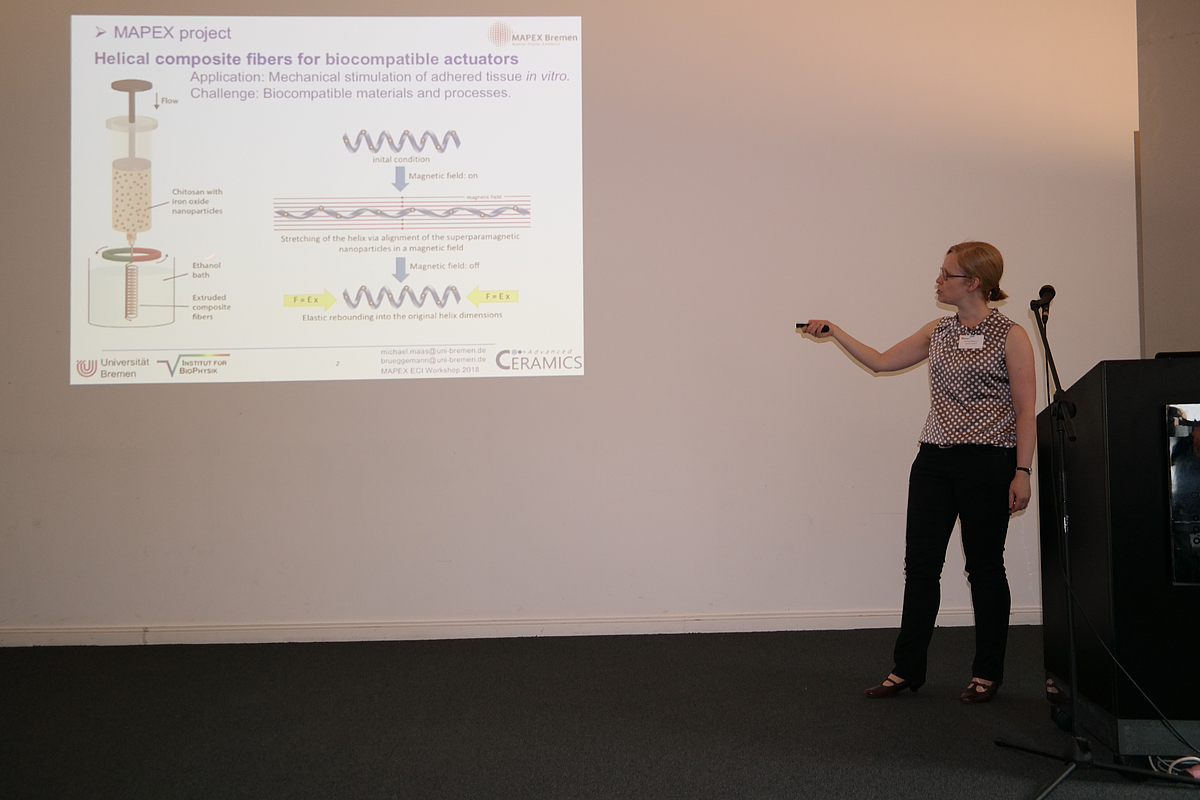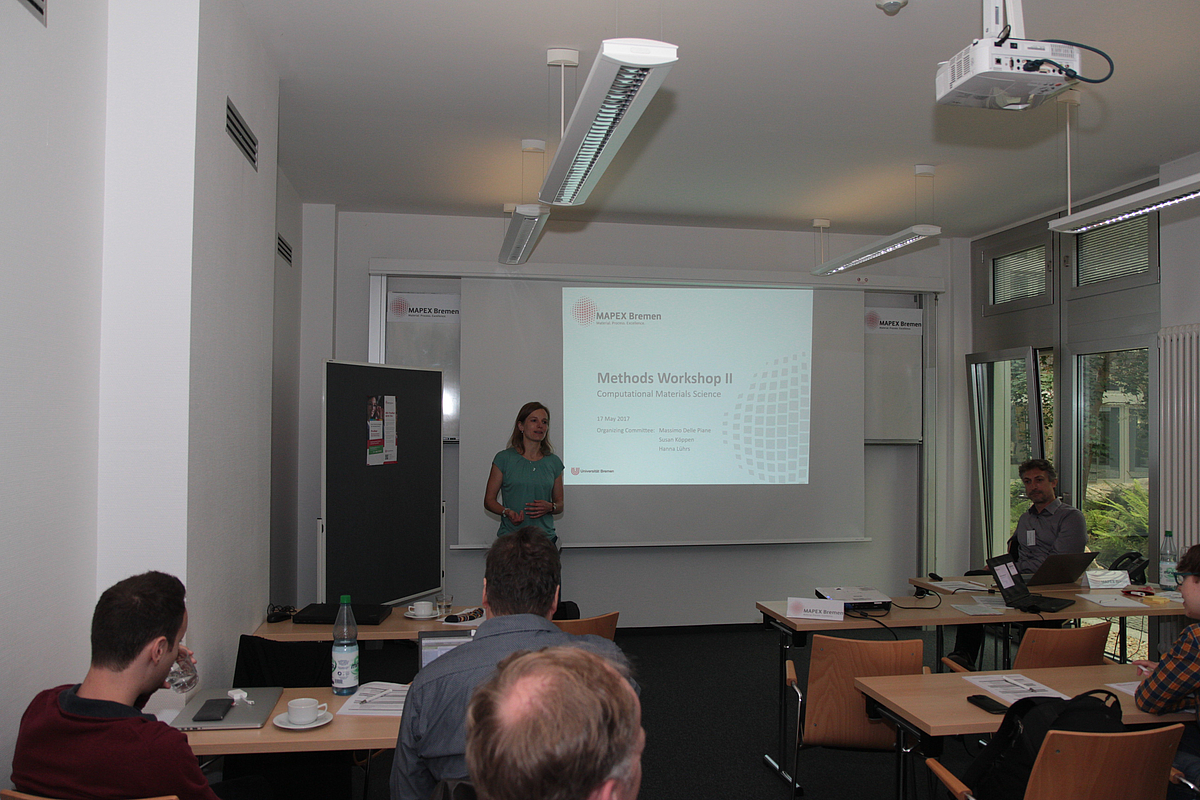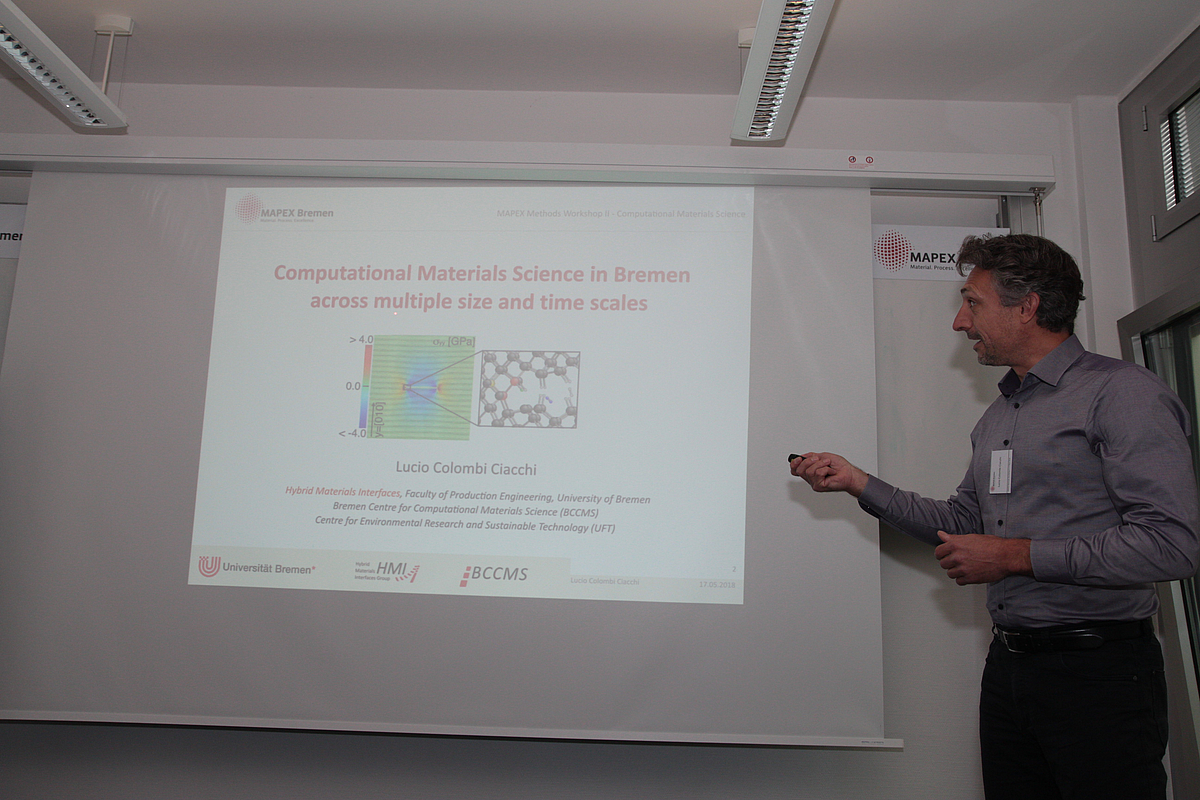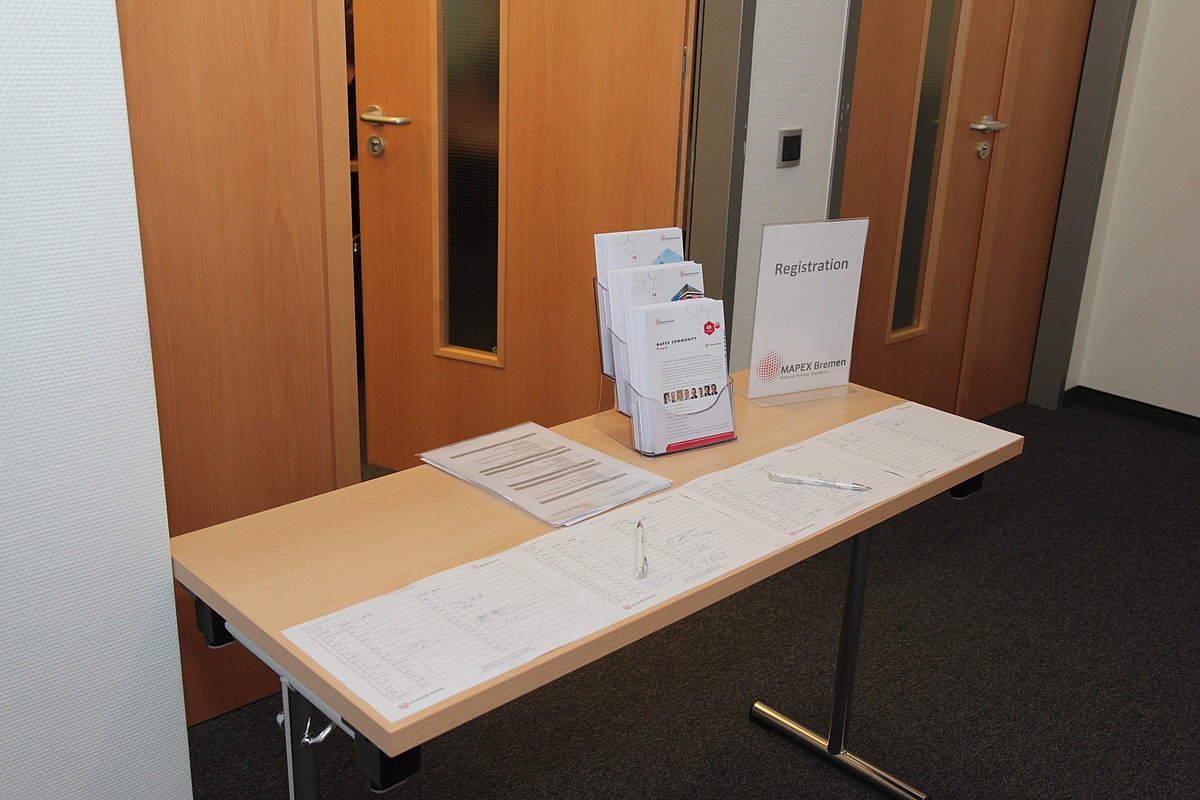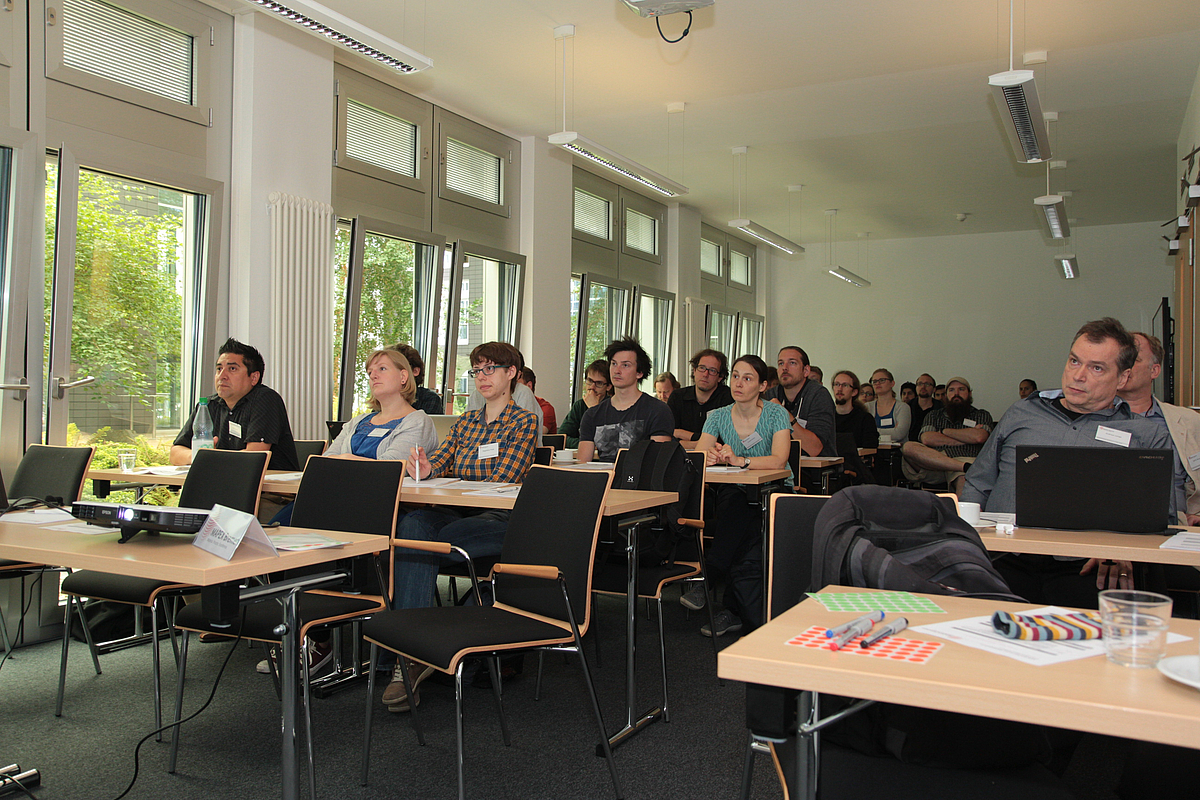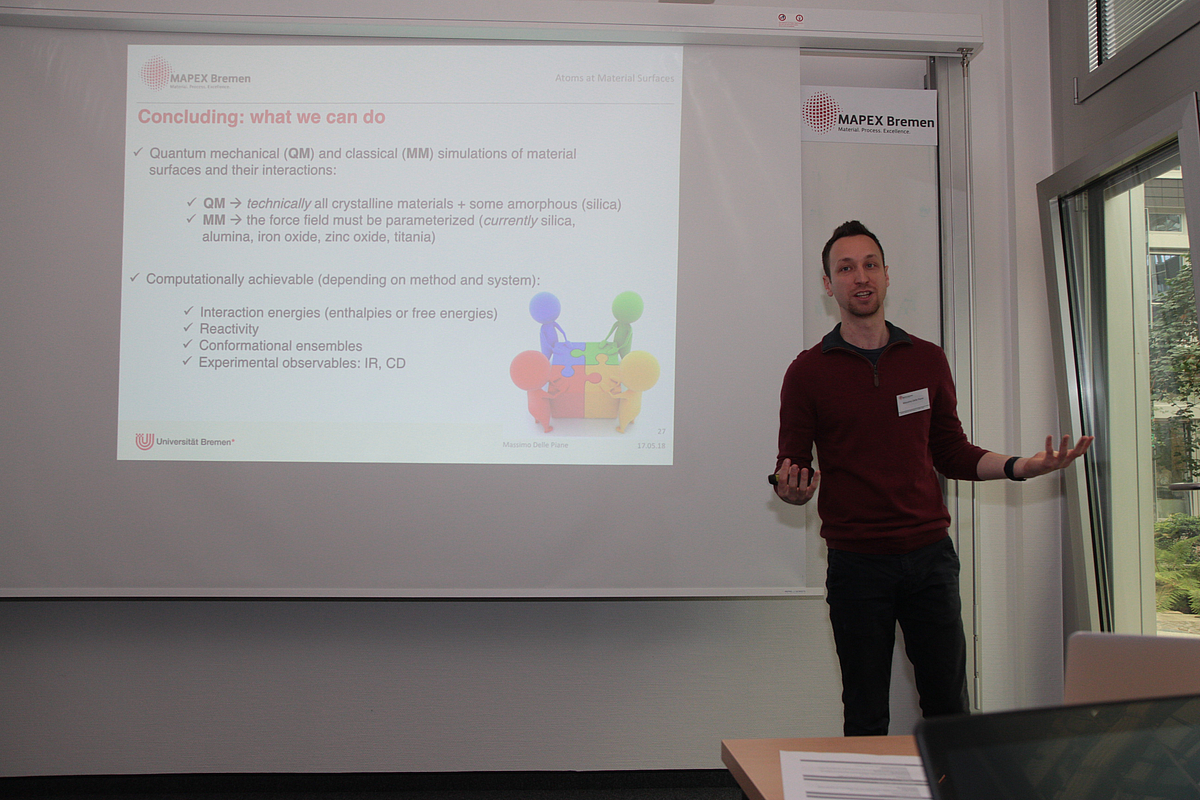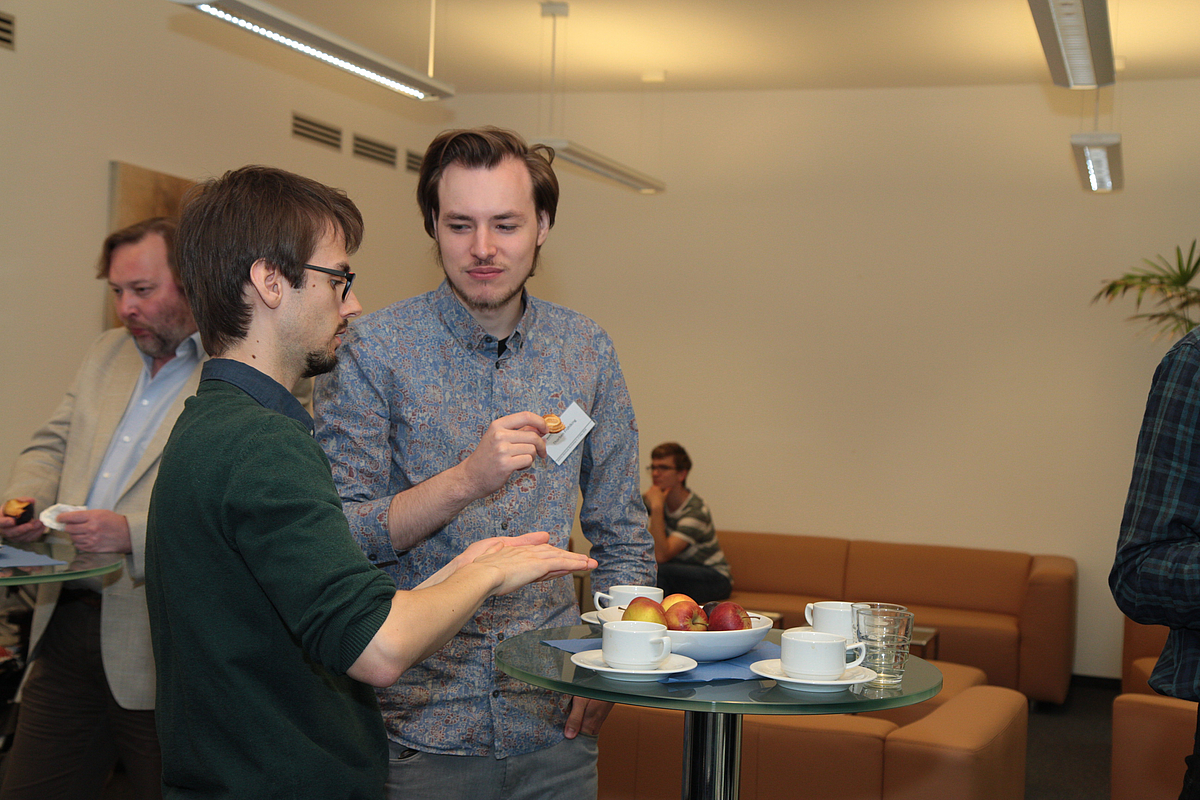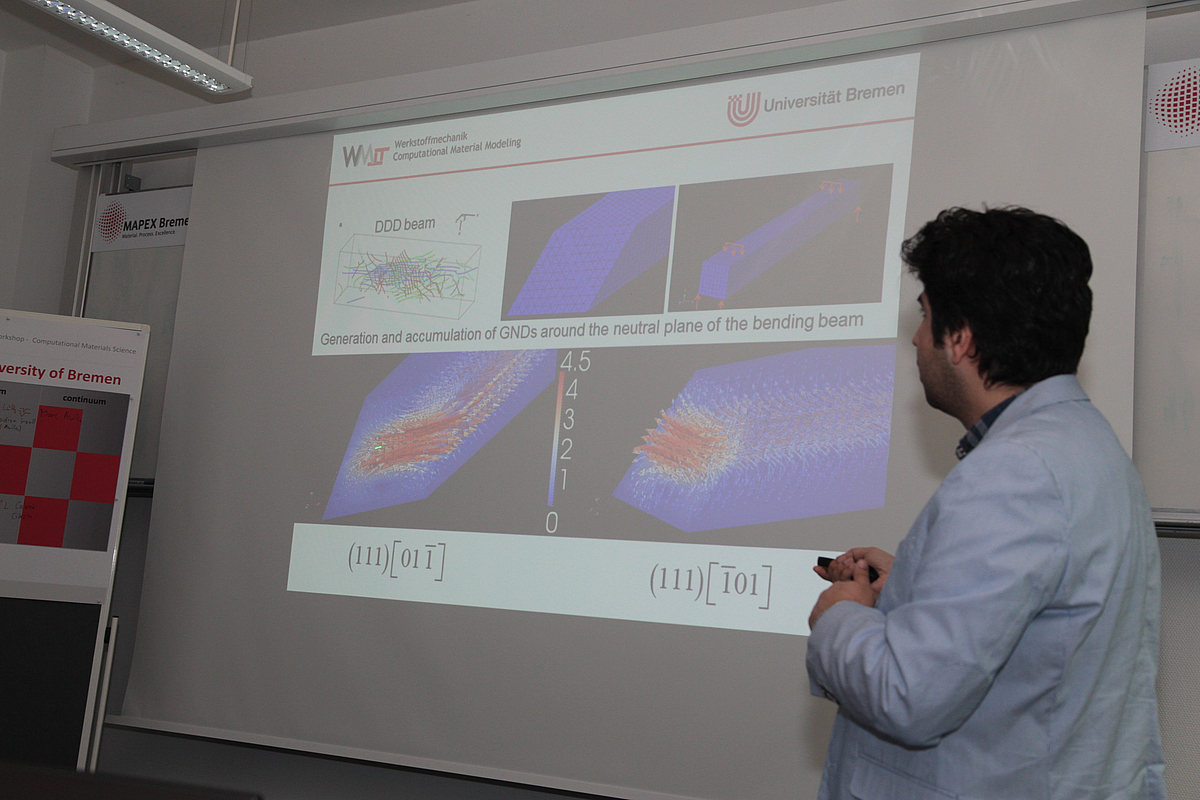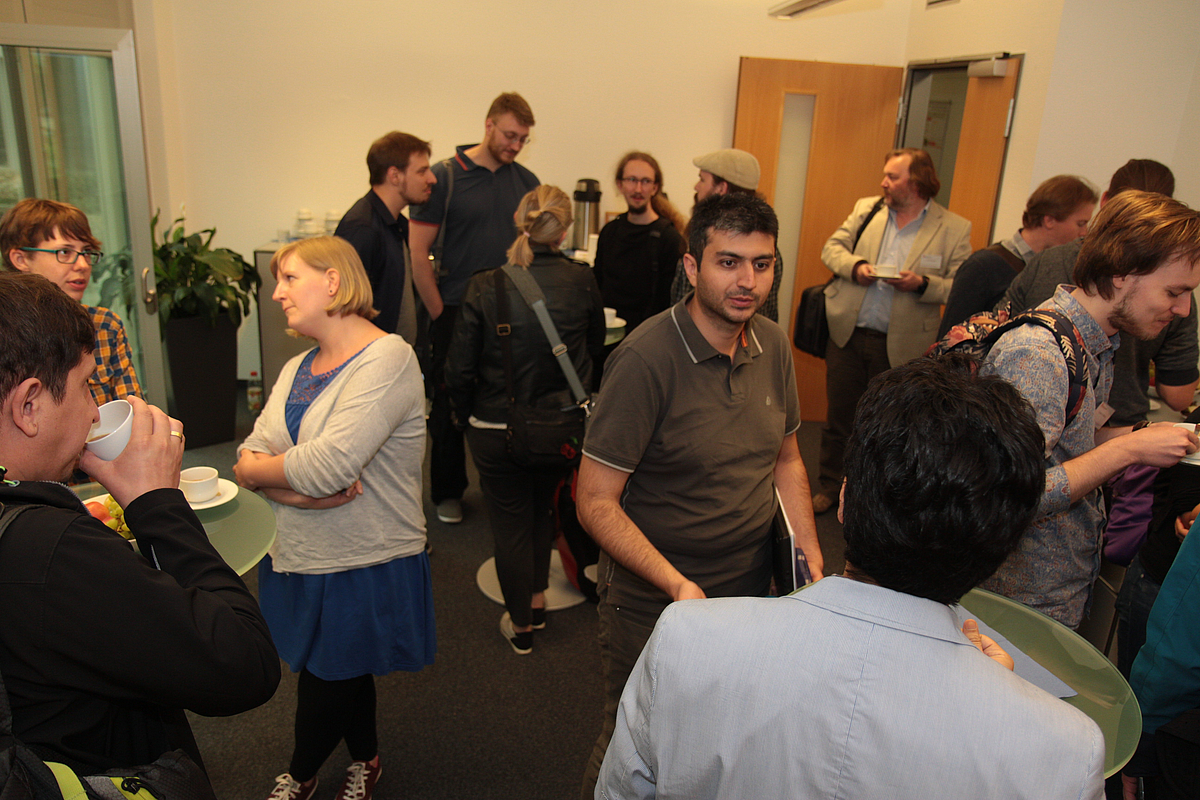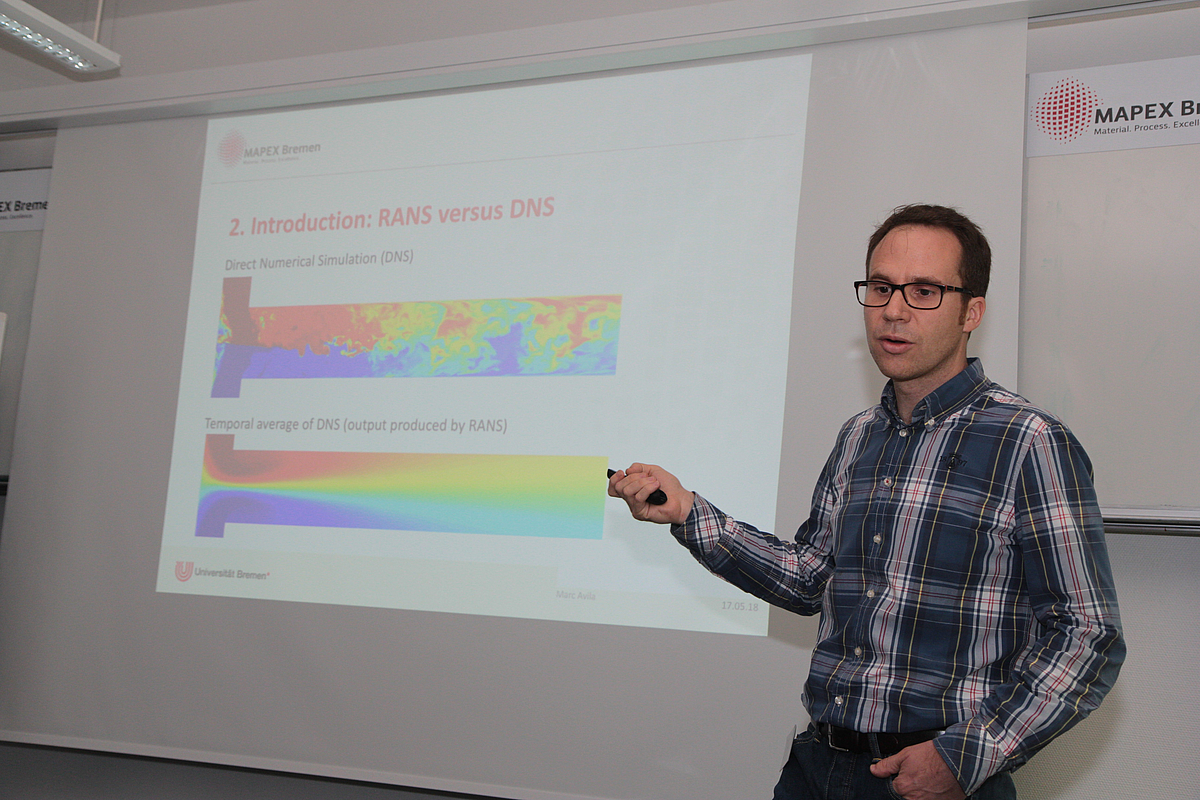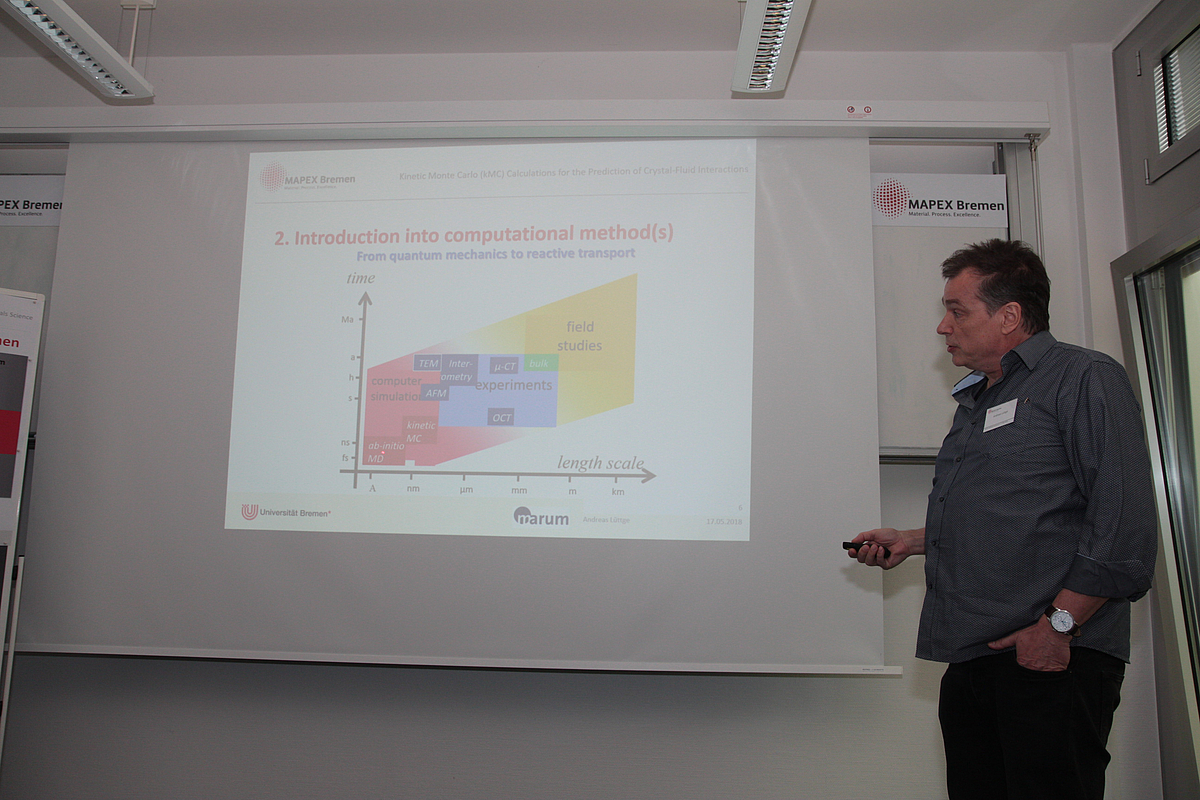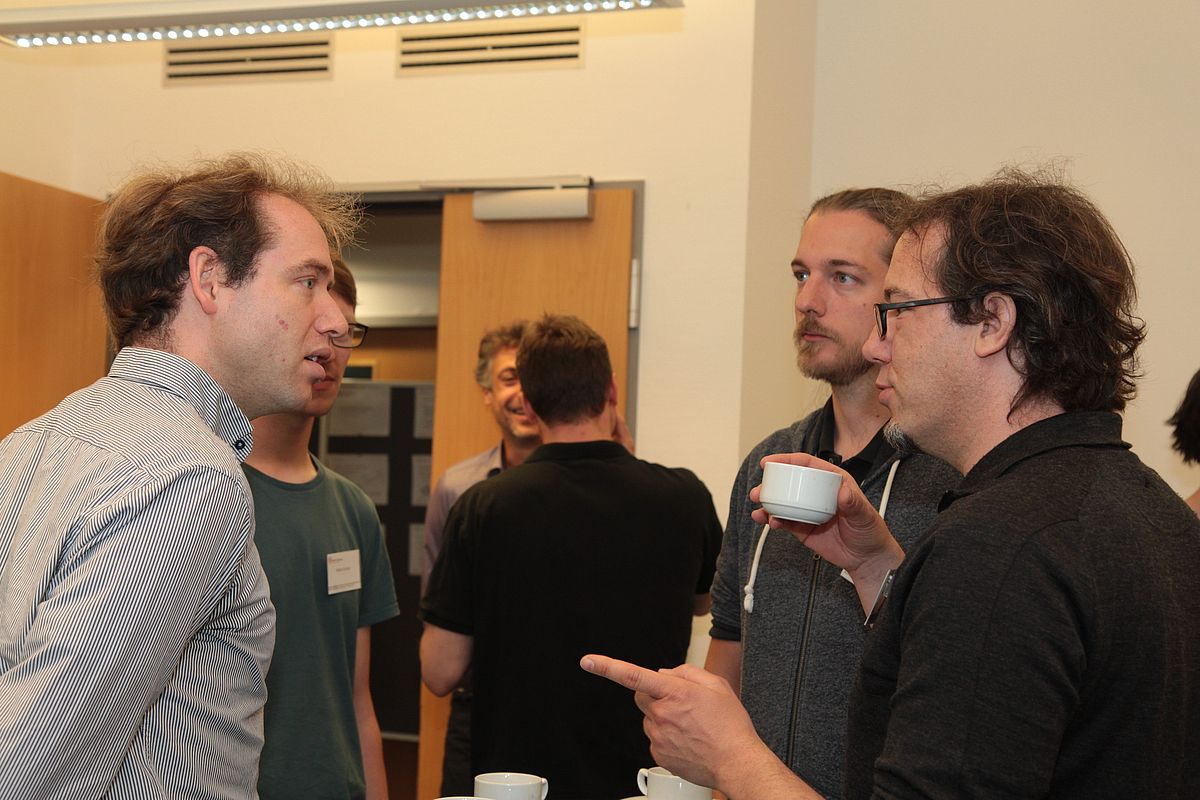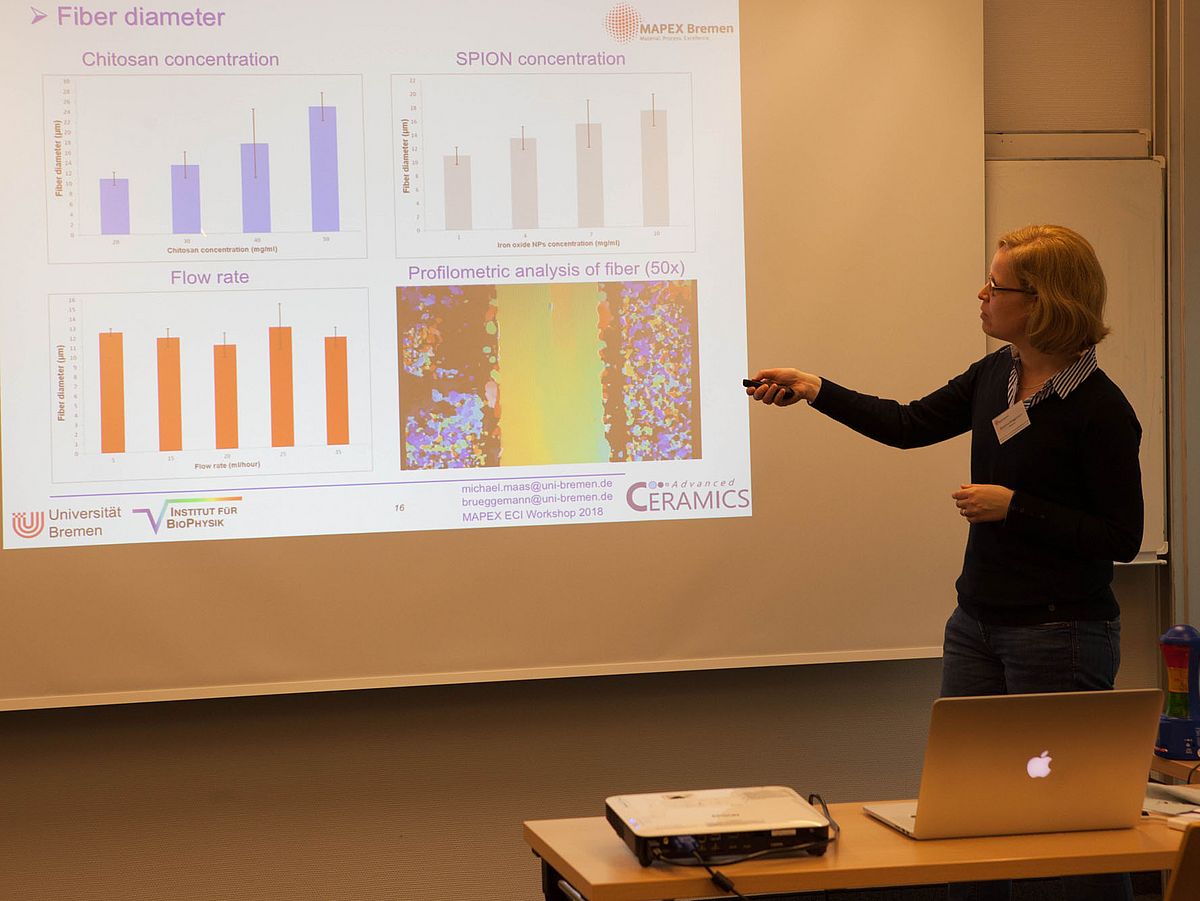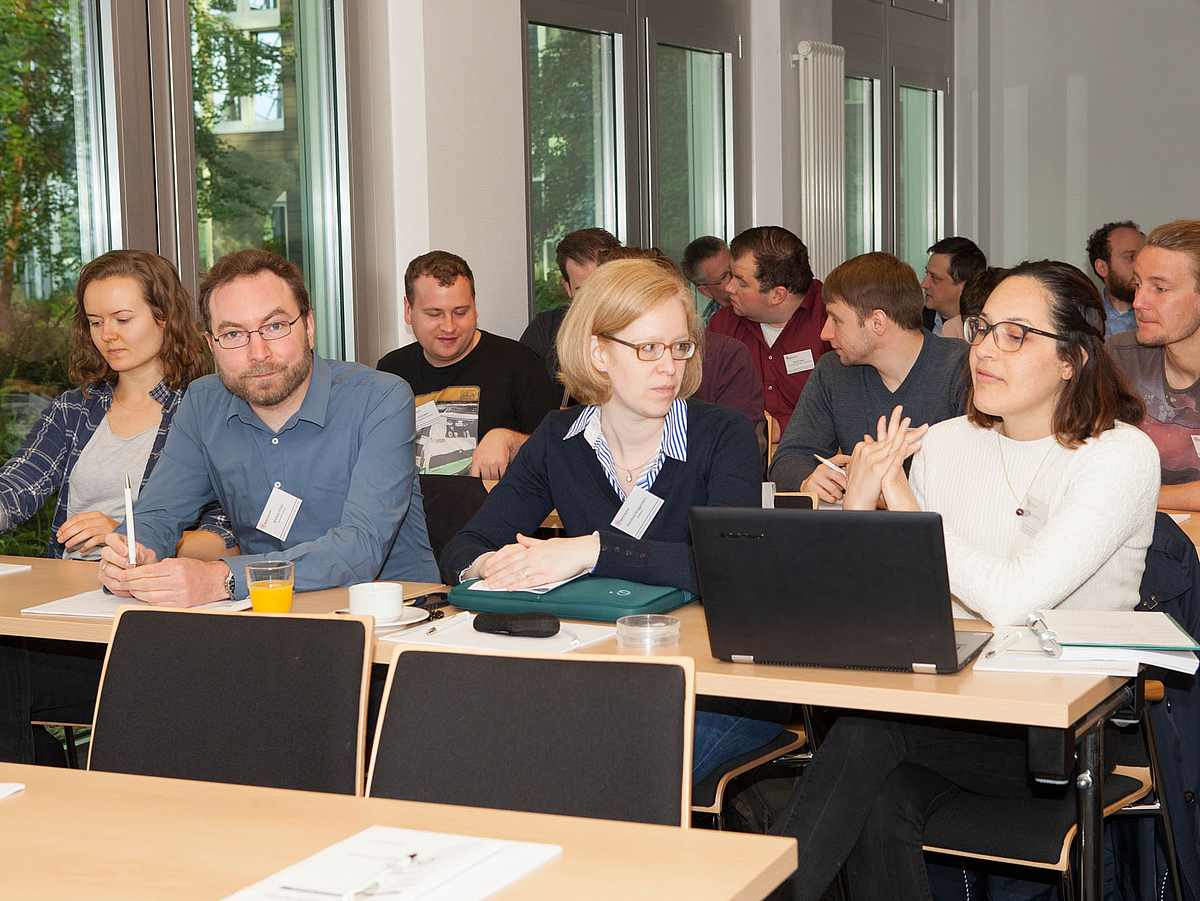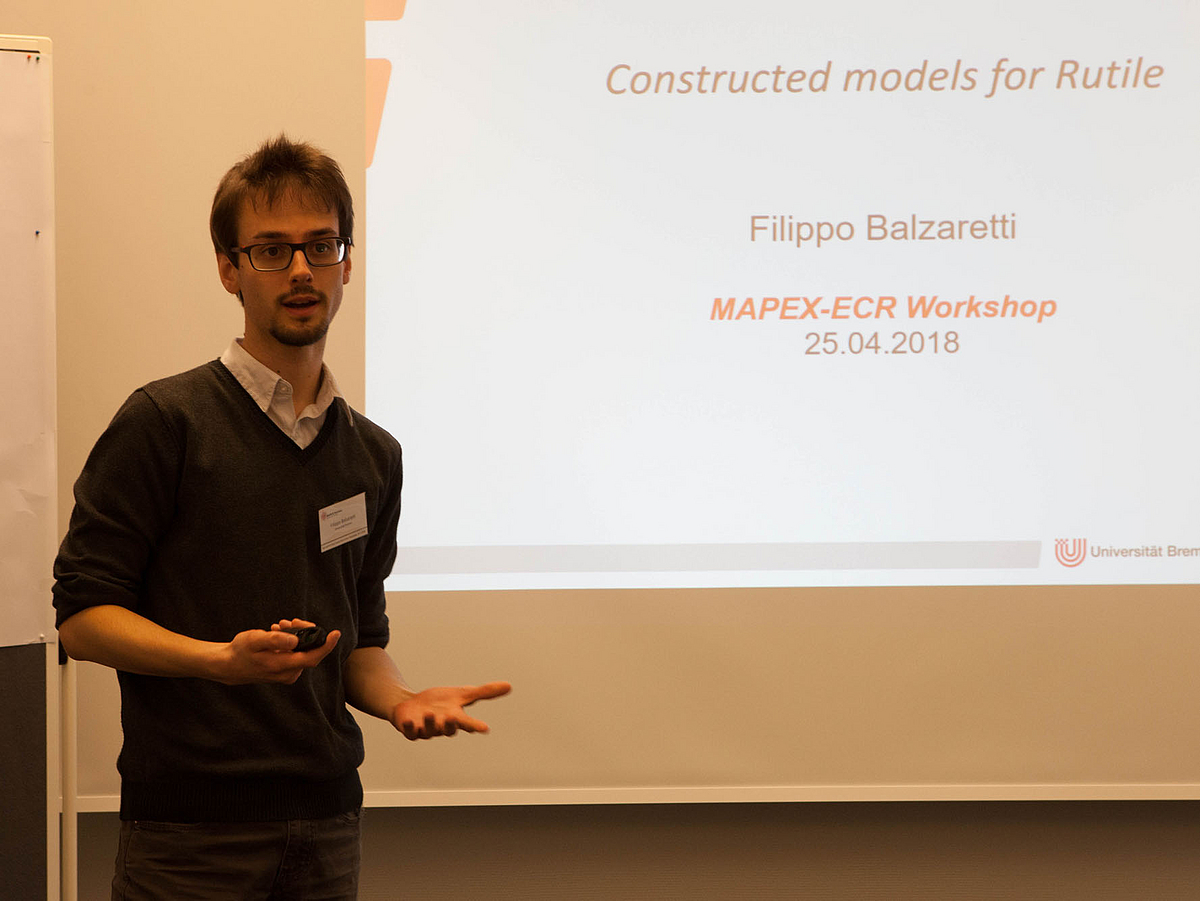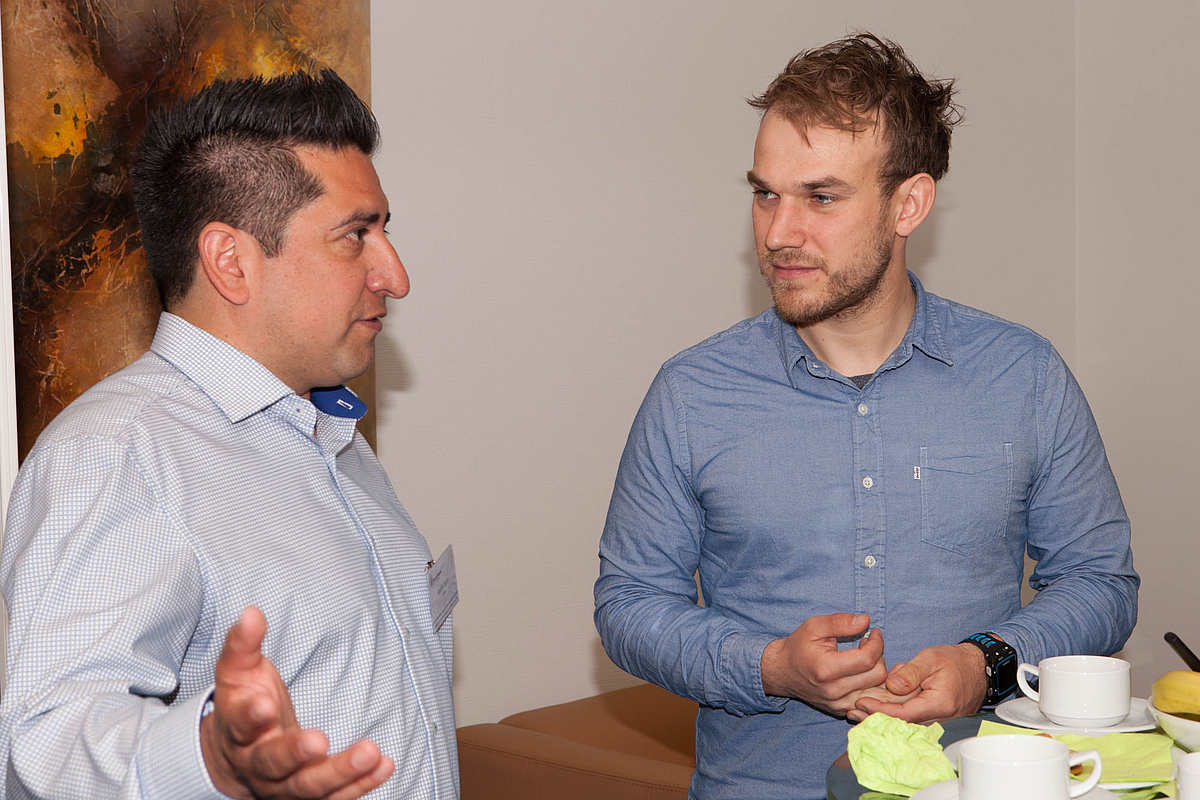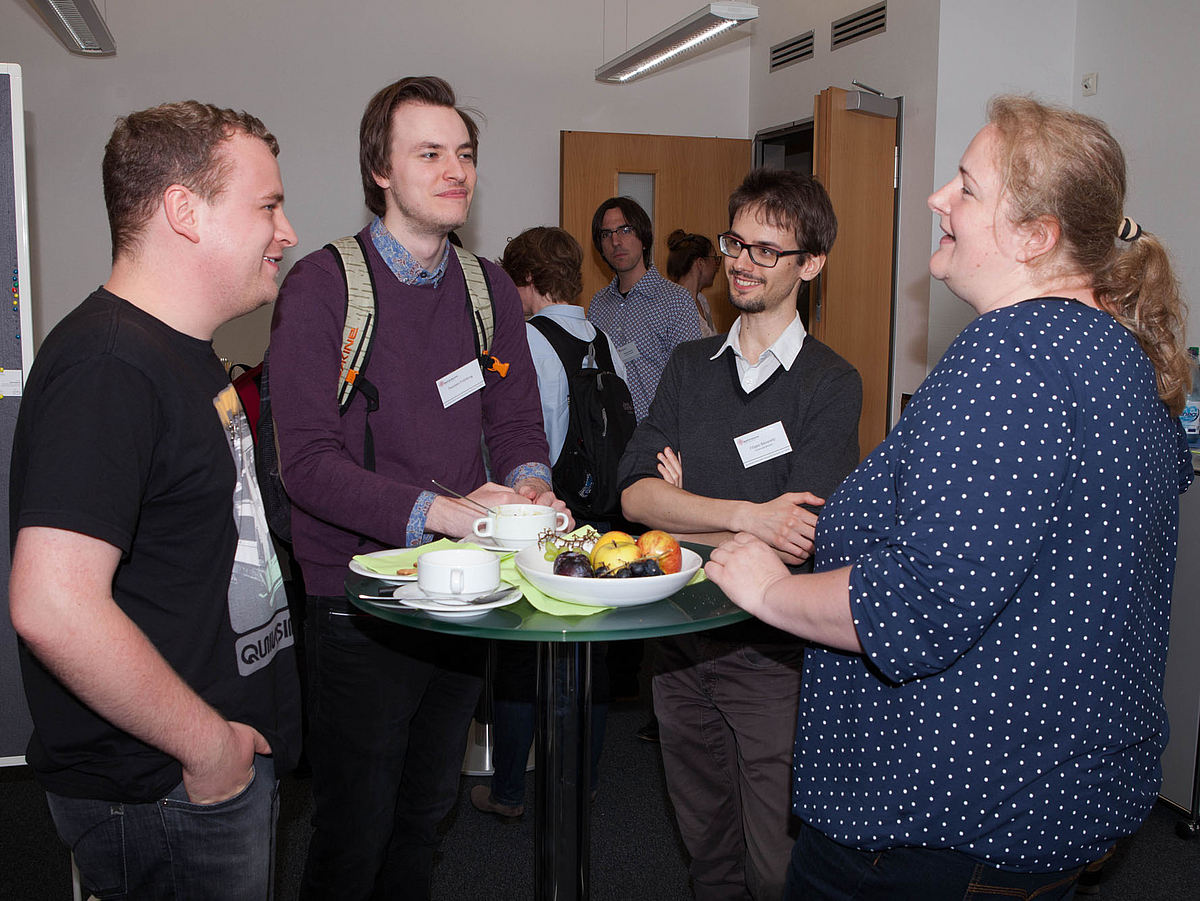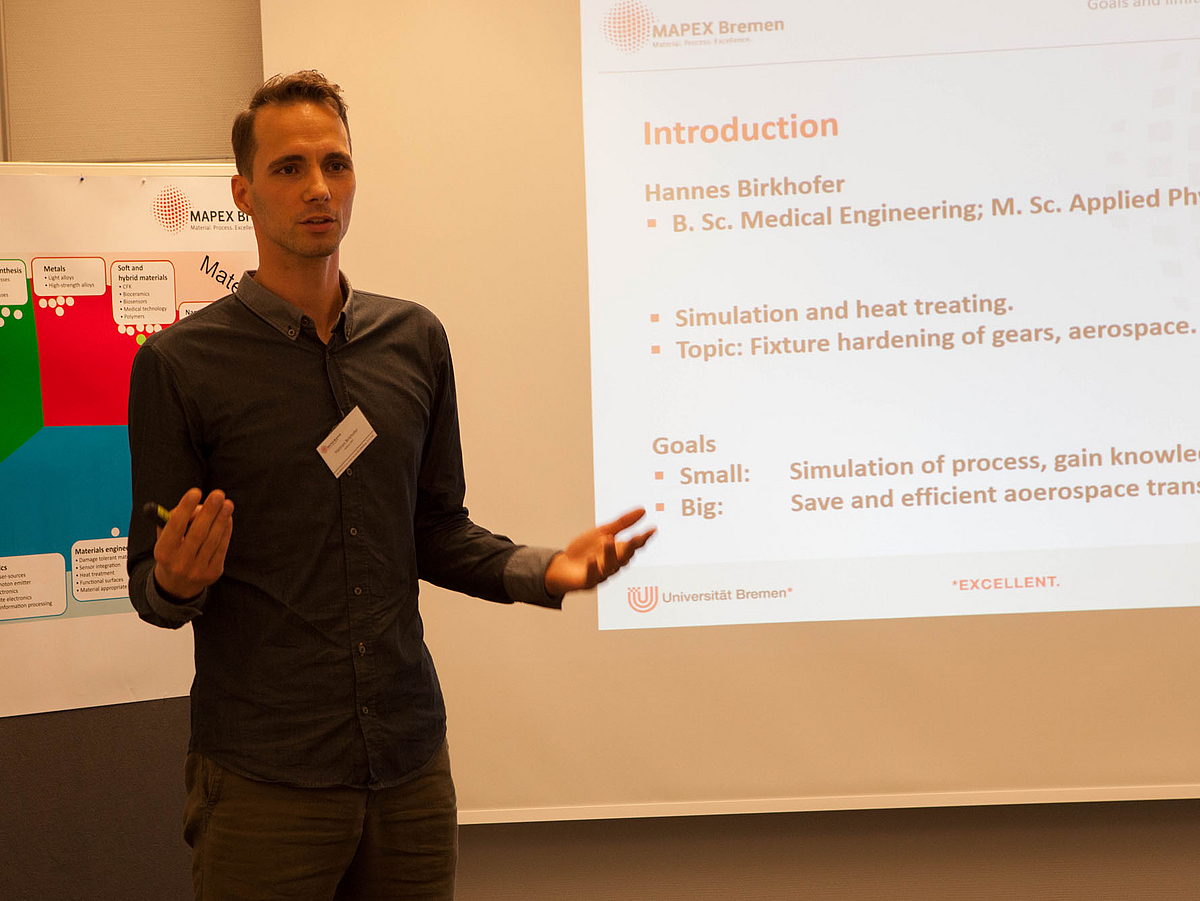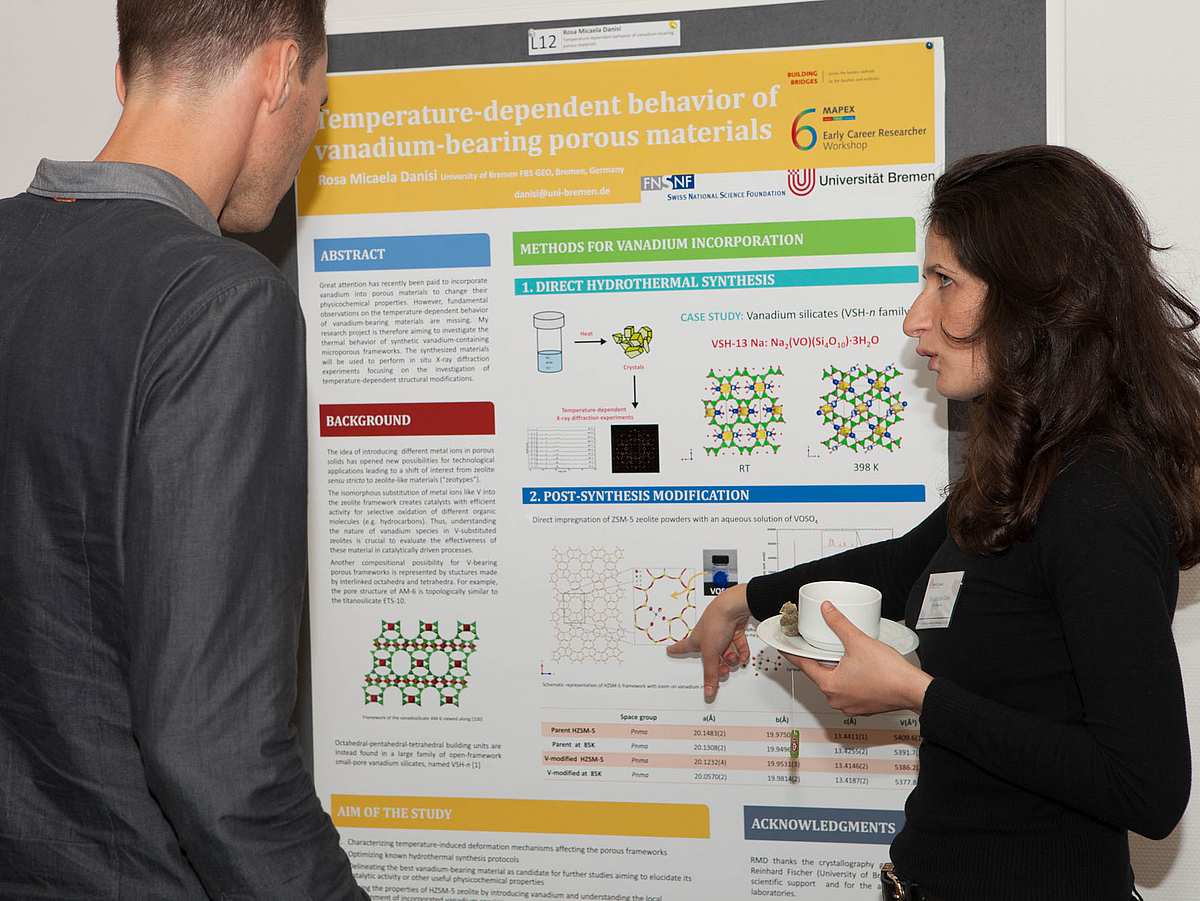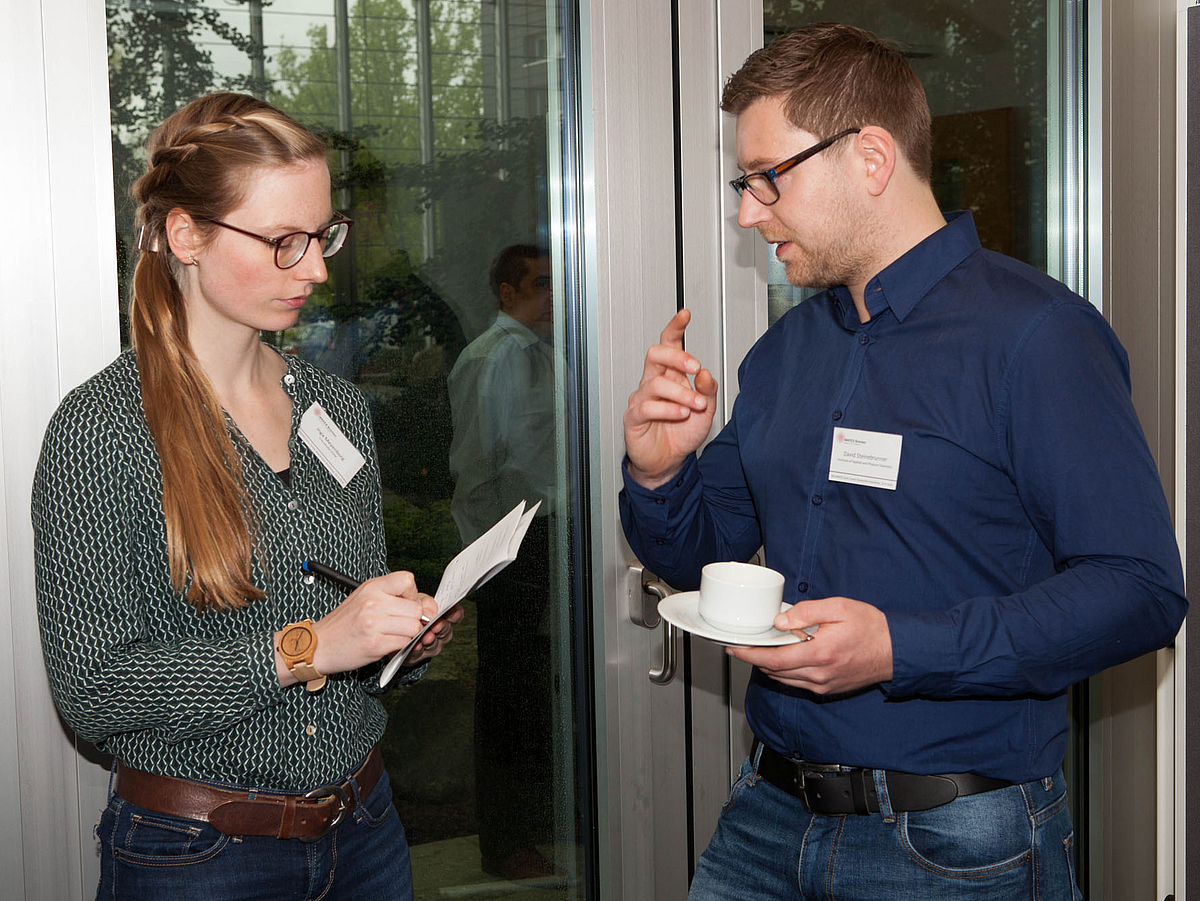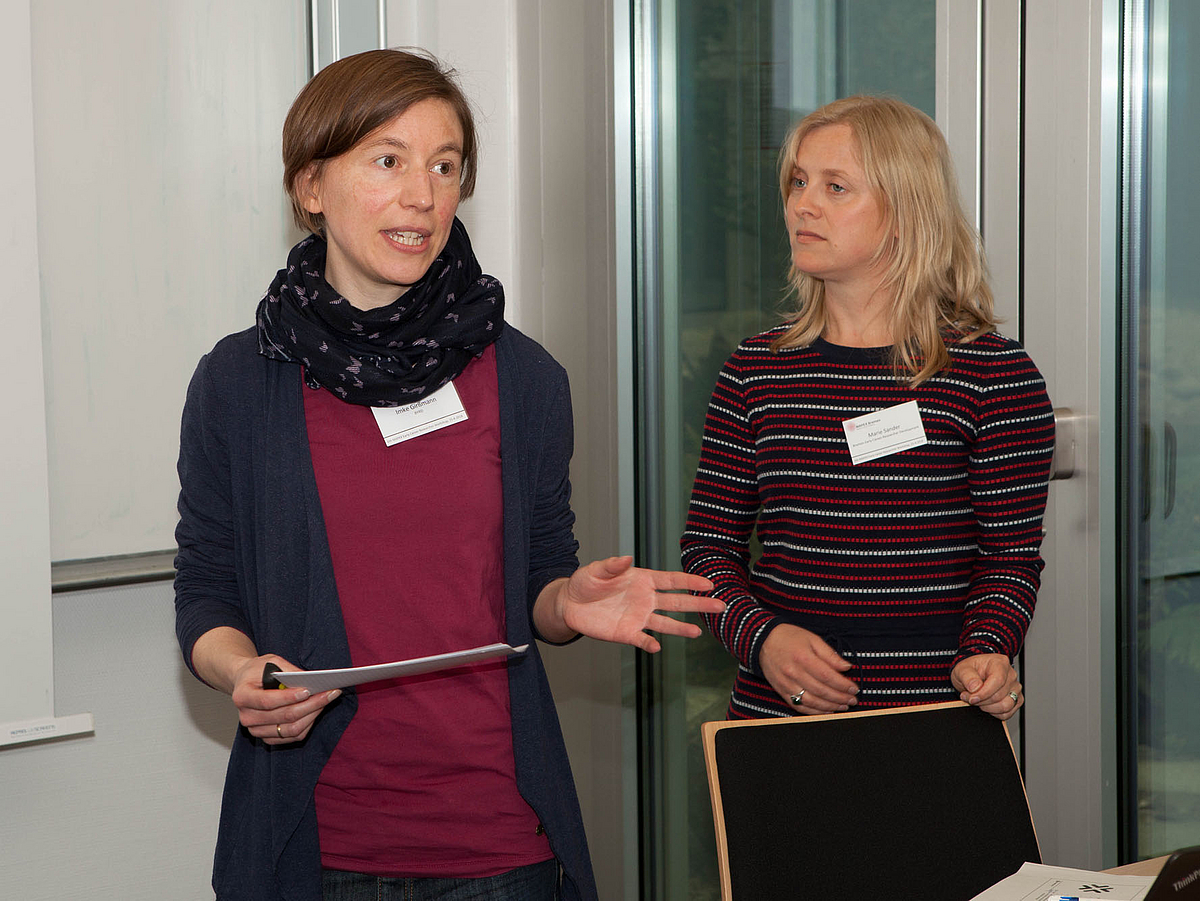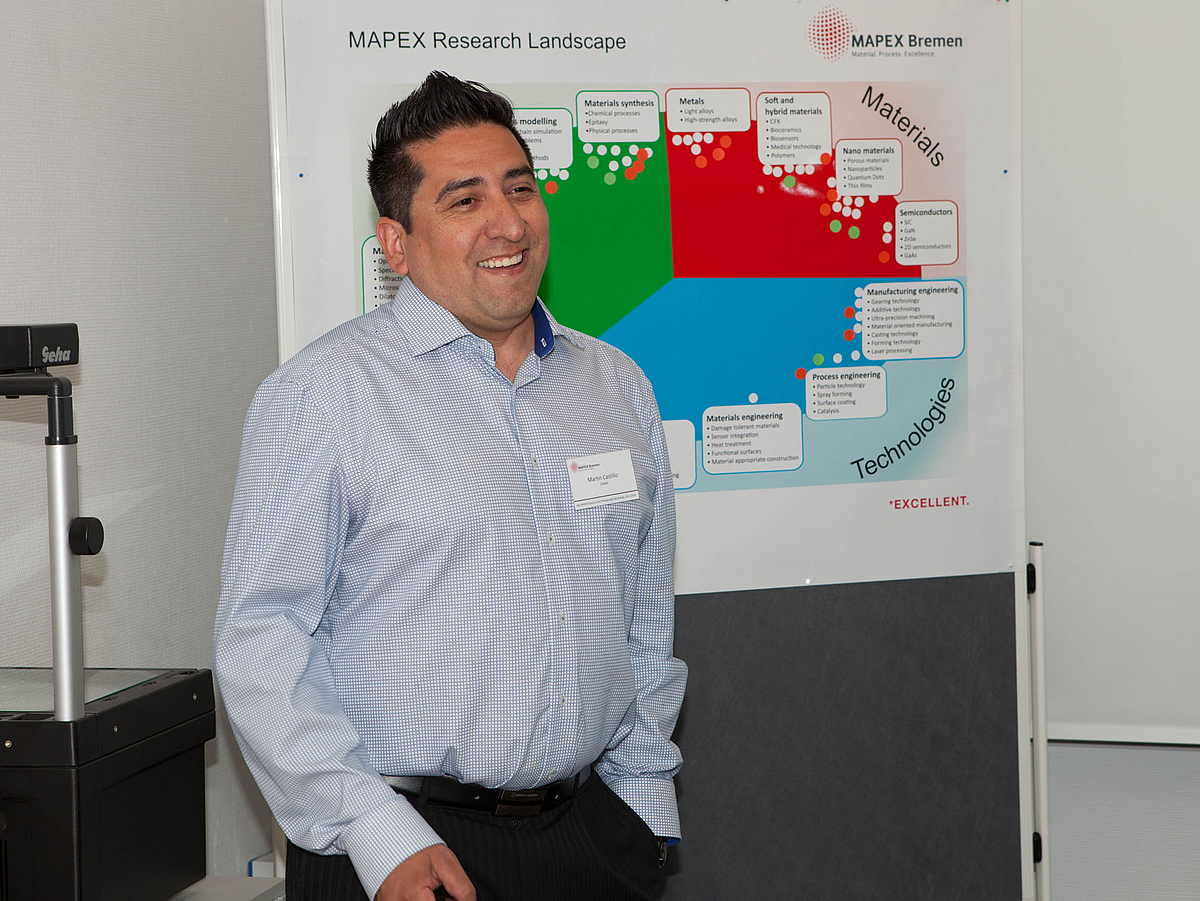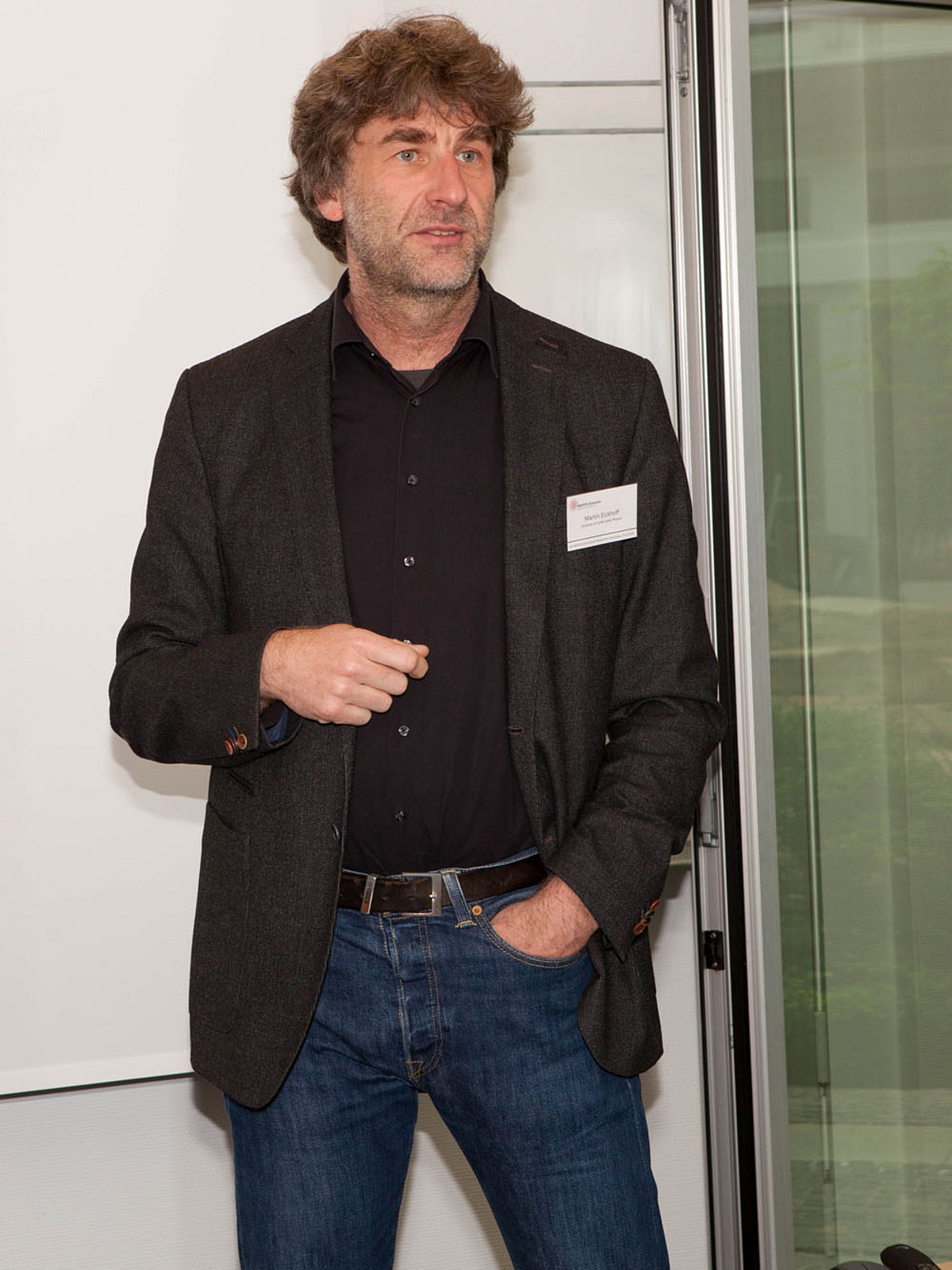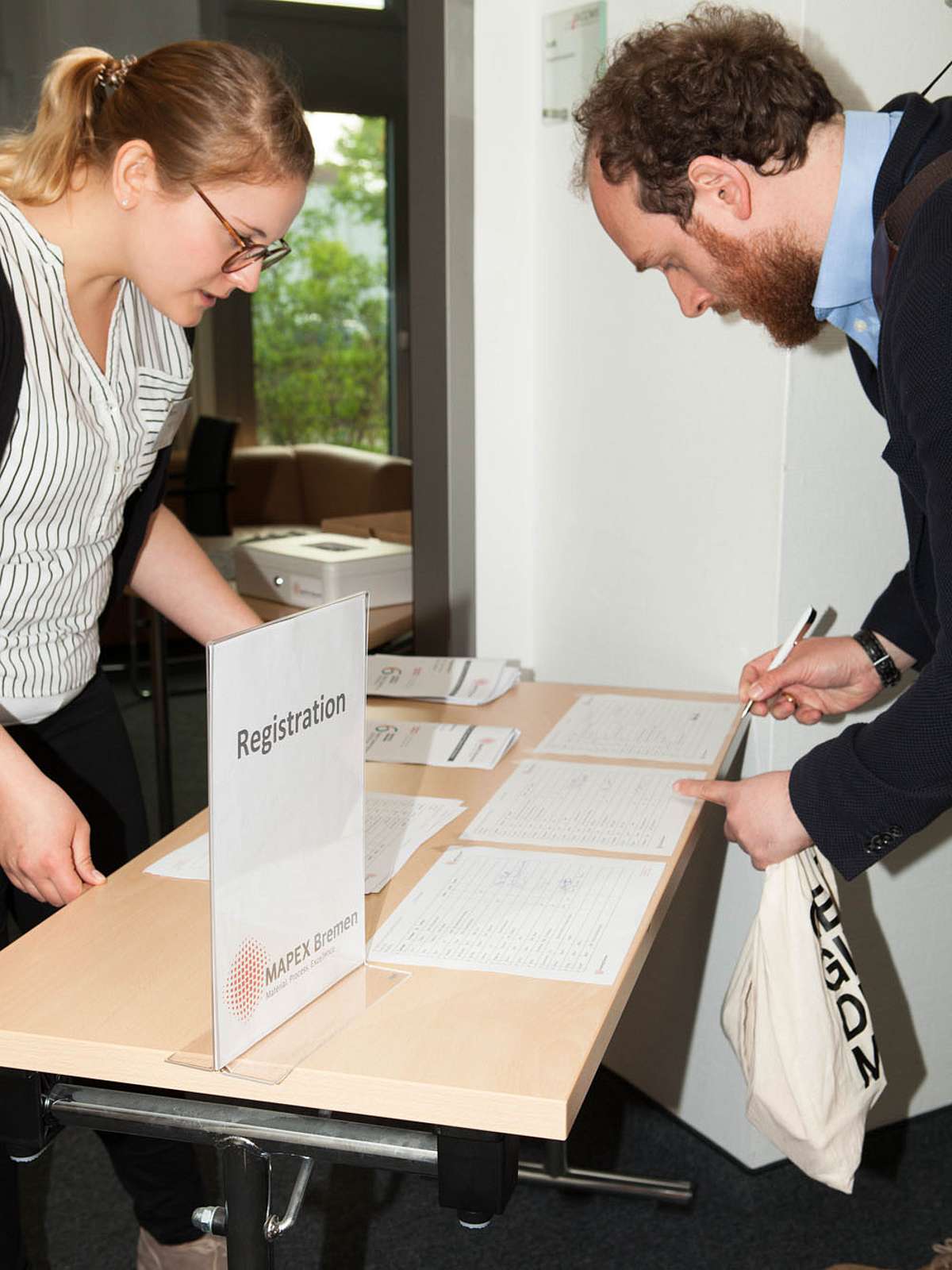"Science meets industry cooperation Projects and career path in(to) the industry"
Events 2018
7th MAPEX Early Career Researchers Workshop
"Science meets industry cooperation Projects and career path in(to) the industry"
MAPEX was the host of previous graduates from the University of Bremen for the 7th MAPEX Early Career Research workshop. These graduates are now members of industry and presented details of their current employment focusing on roles in their employment, current research, current projects, and new and emerging technologies driven by science and technology. These presentations revealed that graduates of MAPEX members are working worldwide and have become leading experts in areas such as metallurgy, corrosion, numerical analysis and simulations, metal printing, advanced cosmetics, extreme high precision machining and tooling.Apart from learning about these areas of their employment, the audience was entertained by fascinating stories involving personal career progression and how to achieve this success. Many stories discussed how the community here at the University of Bremen was their introduction to their current and previous positions. The more than 50 participants actively listened and asked many questions regarding research, employment, and life after leaving university. Please refer to the link below for the detailed programme as this details the list of presenters as their current affiliations.During the break time, detailed discussions with the presenters took place. Participants took great advantage of the time to ask further insight into professional and personal life beyond university life. Exchanges of business cards and ideas could be heard in all parts of the break room.In addition to the focus of this workshop, Charlotte Simmat and Wiltrud Hoffmann from the Bremen Business StartUp and Job Entry, presented the support services of the universities transfer unit such as BRIDGE and the job-oriented Mentoring-Programme “Fokus Berufseinstieg”. These paths detailed the possibilities of bringing current scientific research to industry via patenting and start-up possibilities (BRIDGE). Further enquiries can be made at the Knowledge and Technology Transfer Unit, University of Bremen.
MAPEX Symposium 2018
" Process Monitoring"
Process monitoring was in the focus of this year’s MAPEX Symposium, taking place on 18 and 19 June 2018 in the Haus der Wissenschaft in the city centre. More than 60 participants closely followed the manifold scientific programme. With Sybrand van der Zwaag (TU Delft), Erica Lilleodden (Helmholtz-Zentrum Geesthacht), Raimund Horn (Hamburg University of Technology), and Jörn Viell (RWTH Aachen University) four external experts followed our invitation. Inspiring talks by Erica Lilleodden on “in situ mircomechanical testing” and Andreas Fischer on “speckle-based in-process measurements” were the highlights of the first day with monitoring of manufacturing processes as the main topic. The contributions on the second day were mostly related to catalysis and spectroscopy as a tool for process monitoring. Besides the invited talks, 16 early-career researchers presented a brief overview of their work during the flashlight sessions, inviting the audience for in depth discussion during the subsequent poster exhibition. Two special sessions were dedicated to interdisciplinary research projects that received an “impulse funding” from MAPEX in order to establish and foster new internal cooperation within the MAPEX community. After two days and more than 30 contributions, Kirsten Tracht closed the event with the final talk on “Monitoring of Trends”.
MAPEX Methods Workshop II
"Computational Materials Science!"
The “ simulation toolbox at the University of Bremen” was in the focus of the second MAPEX methods Workshop taking place on 17 May 2018. More than 40 experimental and computational scientists , master students as well as professors , met in the TAB building in order to get an overview about “ Computational Materials Science in Bremen across multiple time and length scales ”, as introduced by MAPEX speaker Lucio Colombi Ciacchi . The following eight speakers provided a comprehensive overview about their different fields of expertise , ranging from the simulation of electrons in 2D materials , electrons and atoms at interfaces over the structural prediction of biomolecules to the simulation of fluid processes and the calculation of crystal plasticity . Lively discussions during the lunch and coffee breaks demonstrated the huge potential for new ideas and collaborations .
Bremen Center for Computational Materials Science
6th MAPEX Early Career Researchers Workshop
"Building bridges across the boarders defined by the faculties and institutes."
More than 40 young scientists from four faculties of the university met during the sixth edition of the MAPEX Early Career Researcher Workshop on 25 April 2018. The flashlight and keynote presentations provided a good basis for a lively interdisciplinary exchange between postdocs, PhD candidates, and master students during the poster sessions. Colleagues from the research services unit and the Bremen Early Career Researcher Development (BYRD) answered numerous questions regarding funding schemes for postdocs as well as the support of early-career researchers at the University of Bremen. With his plenary lecture on “Semiconductor nanostructures - smart probes for biological systems” Martin Eickhoff closed the official programme of the workshop. After a day full of scientific insights, some participants enjoyed a visit of the "Hafenrummel", testing their luck and skill on a course of fairground attractions of the 1950ies.
Detailed Programme


